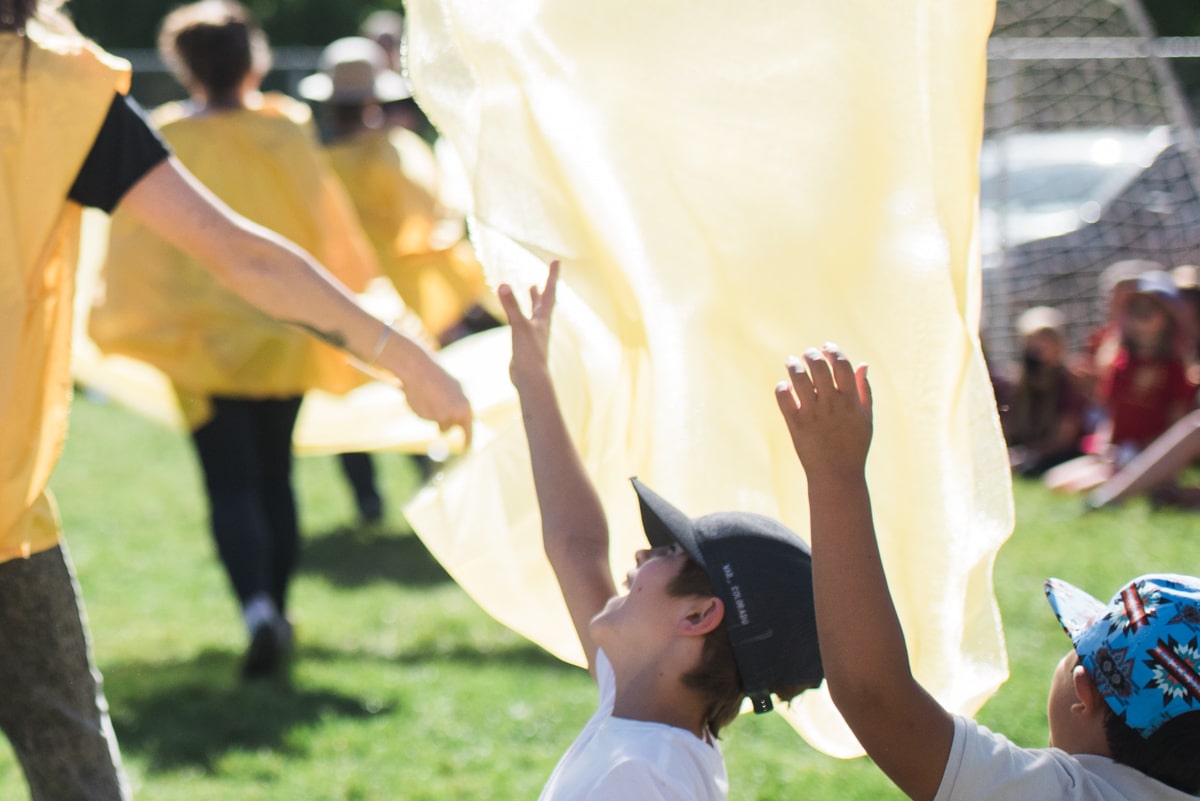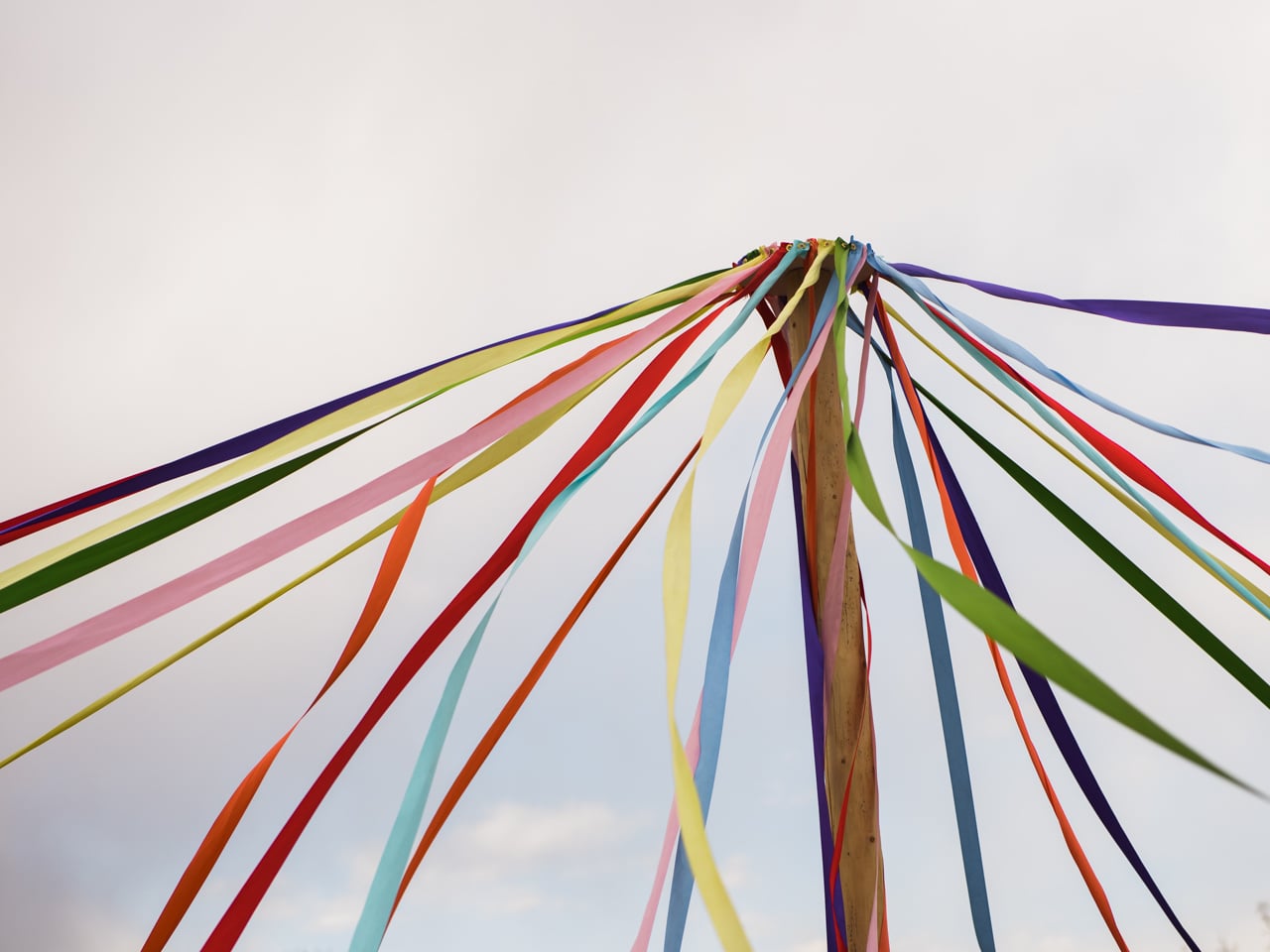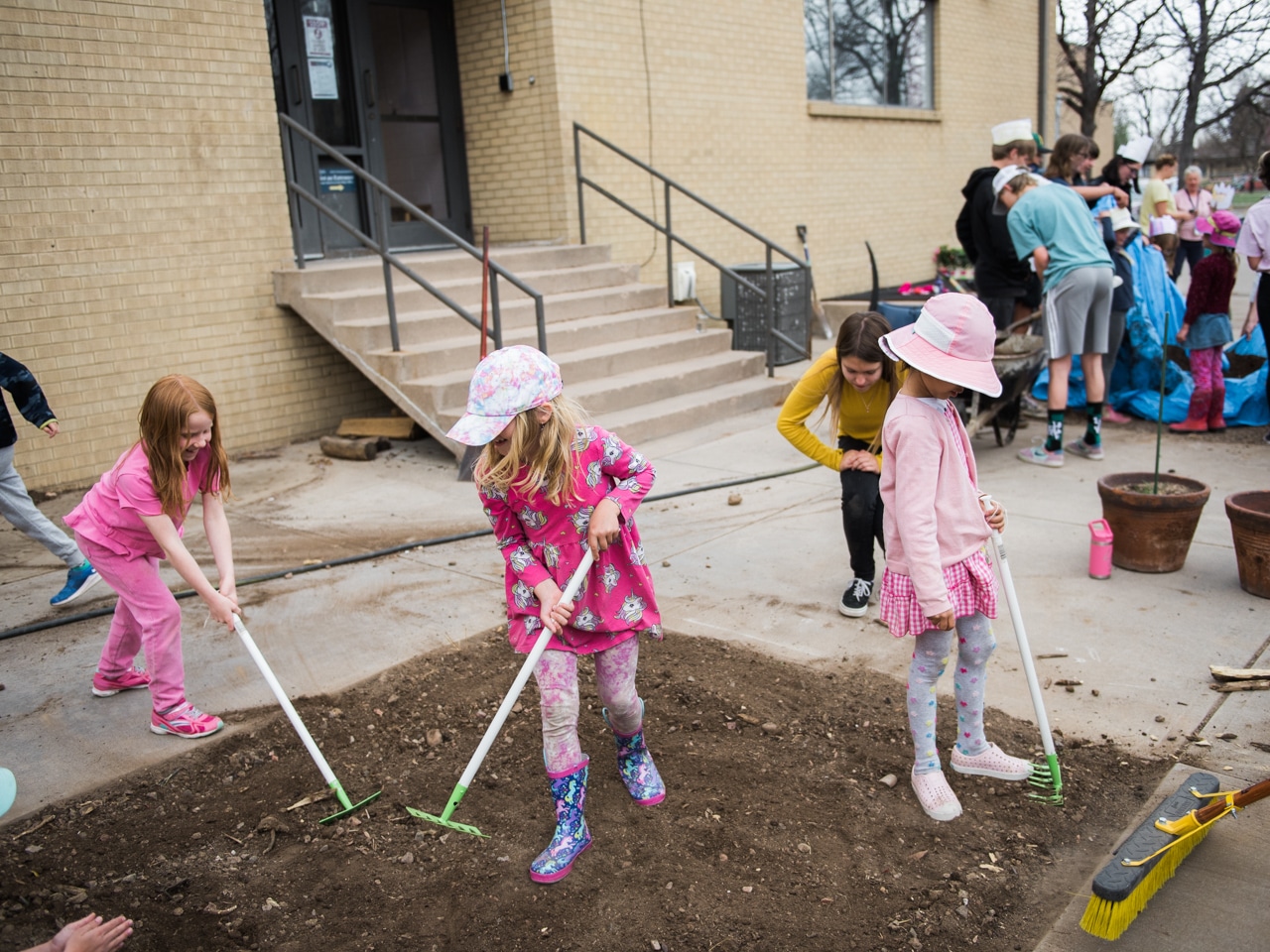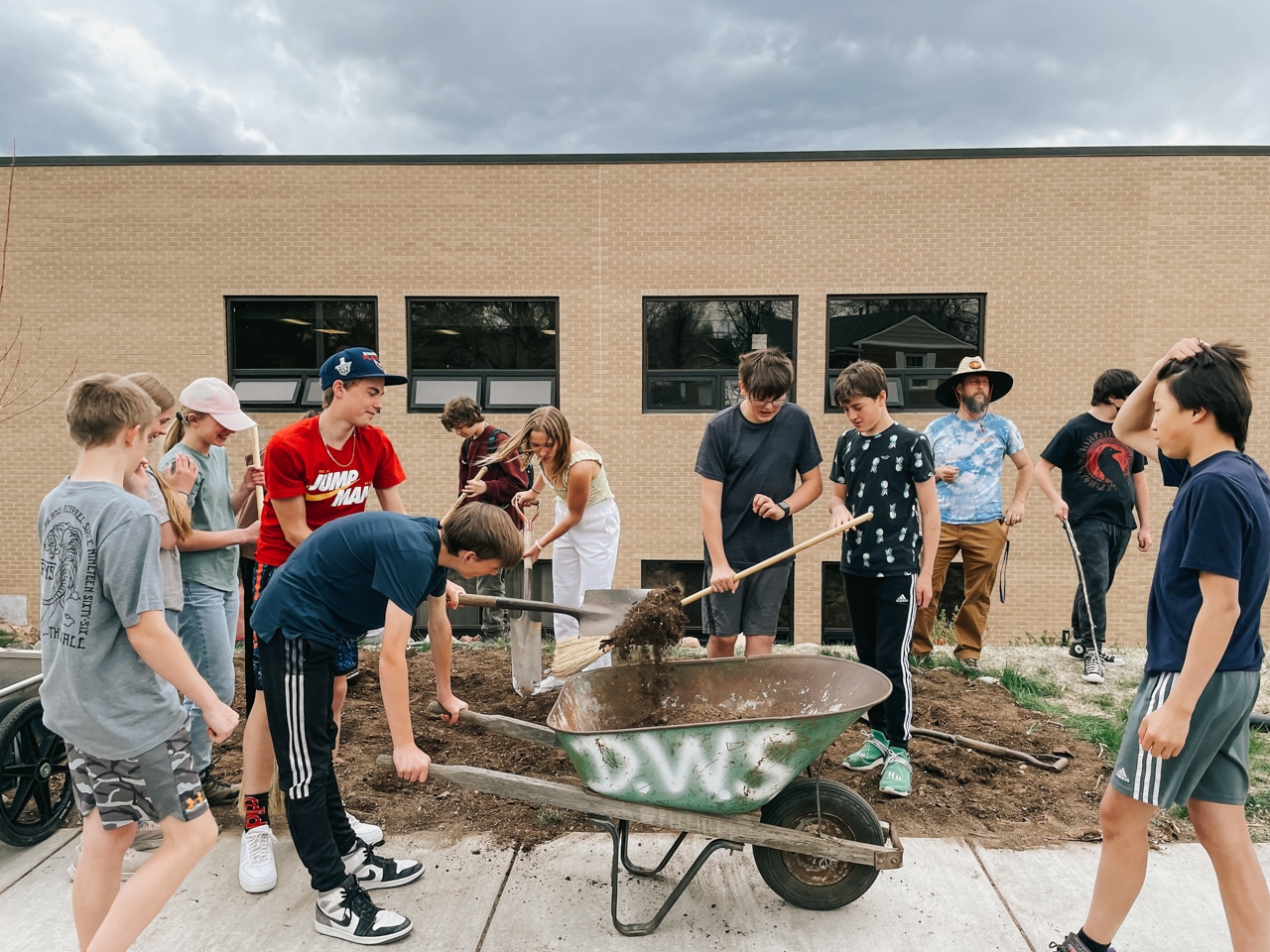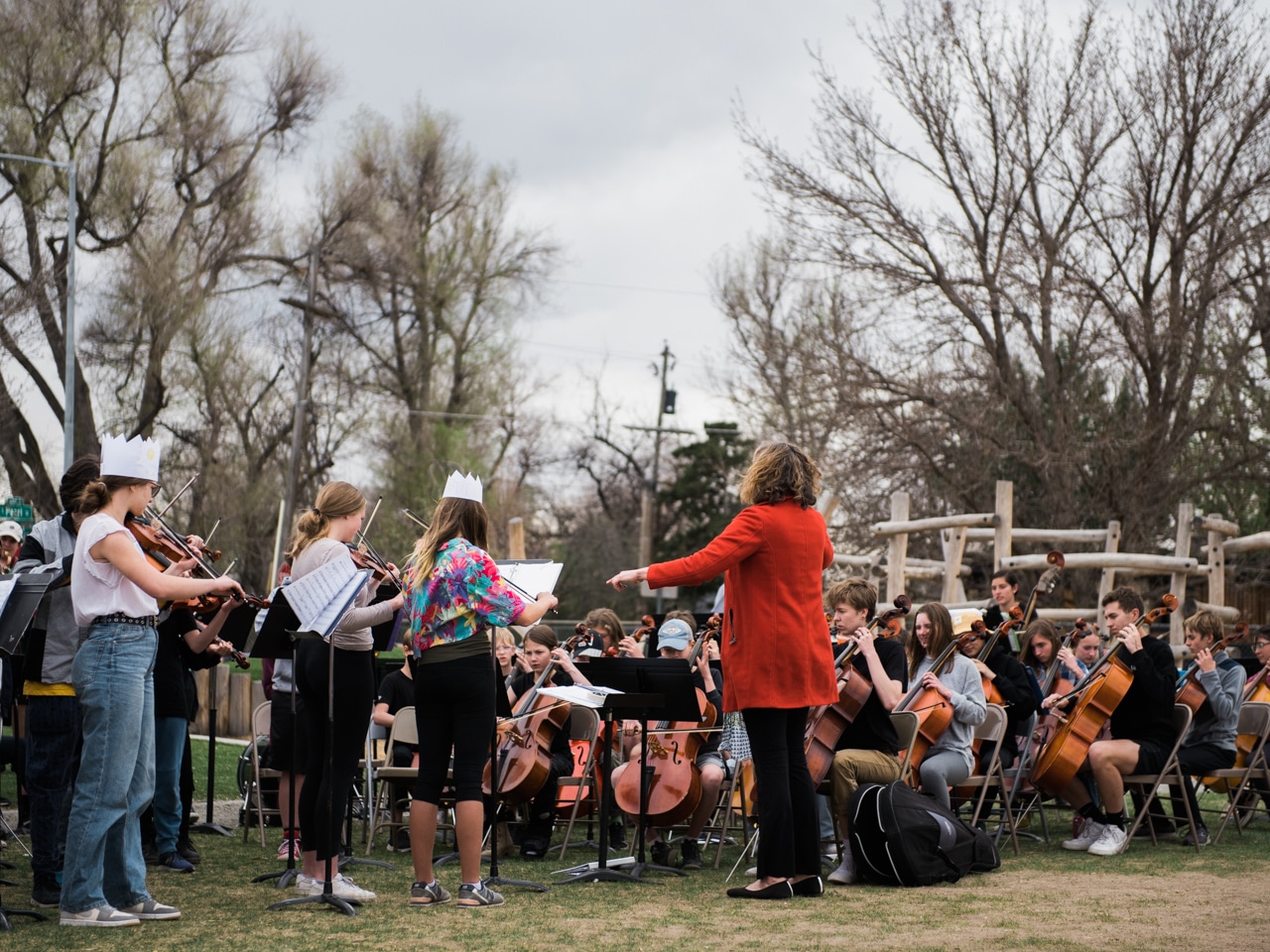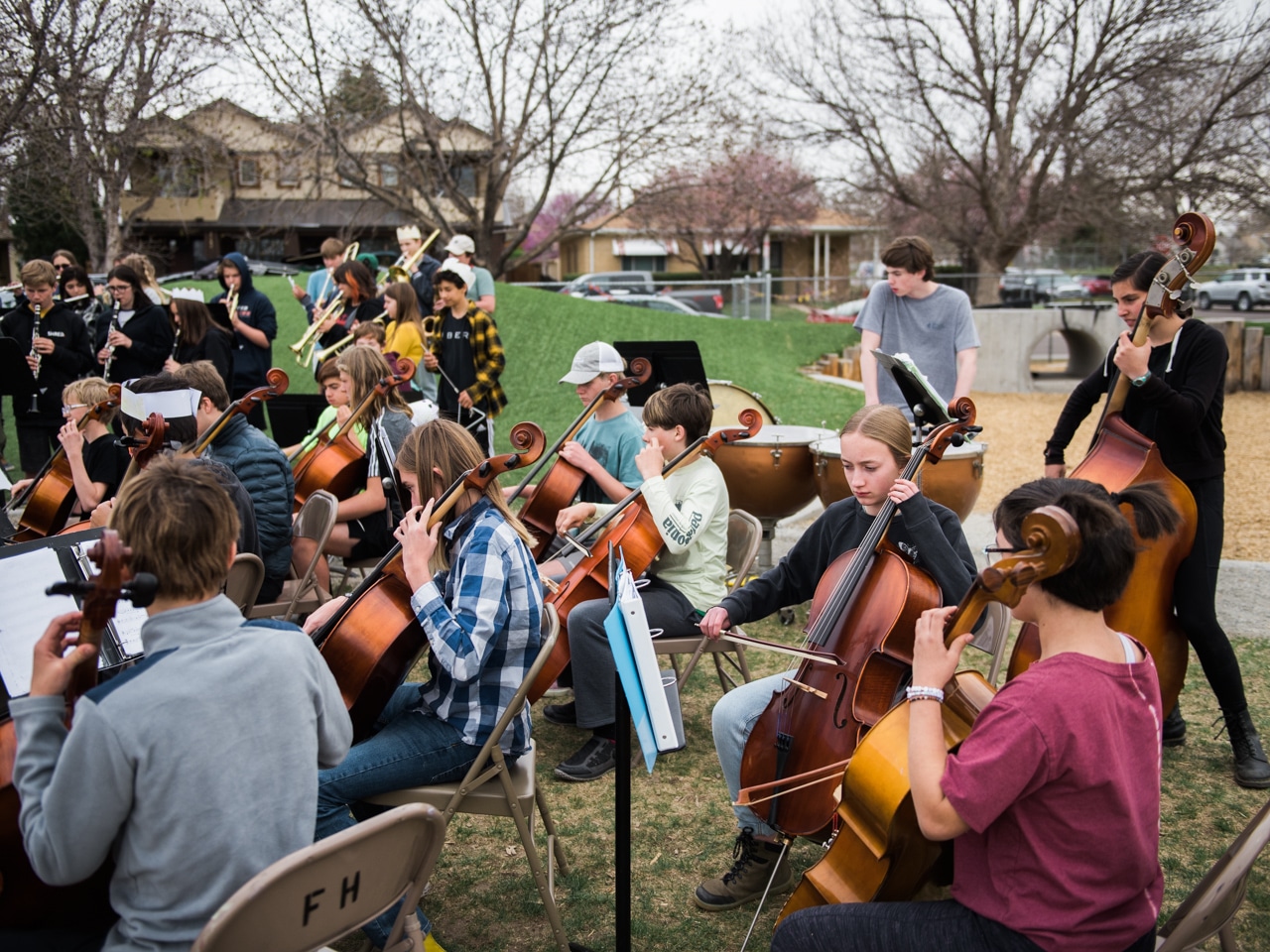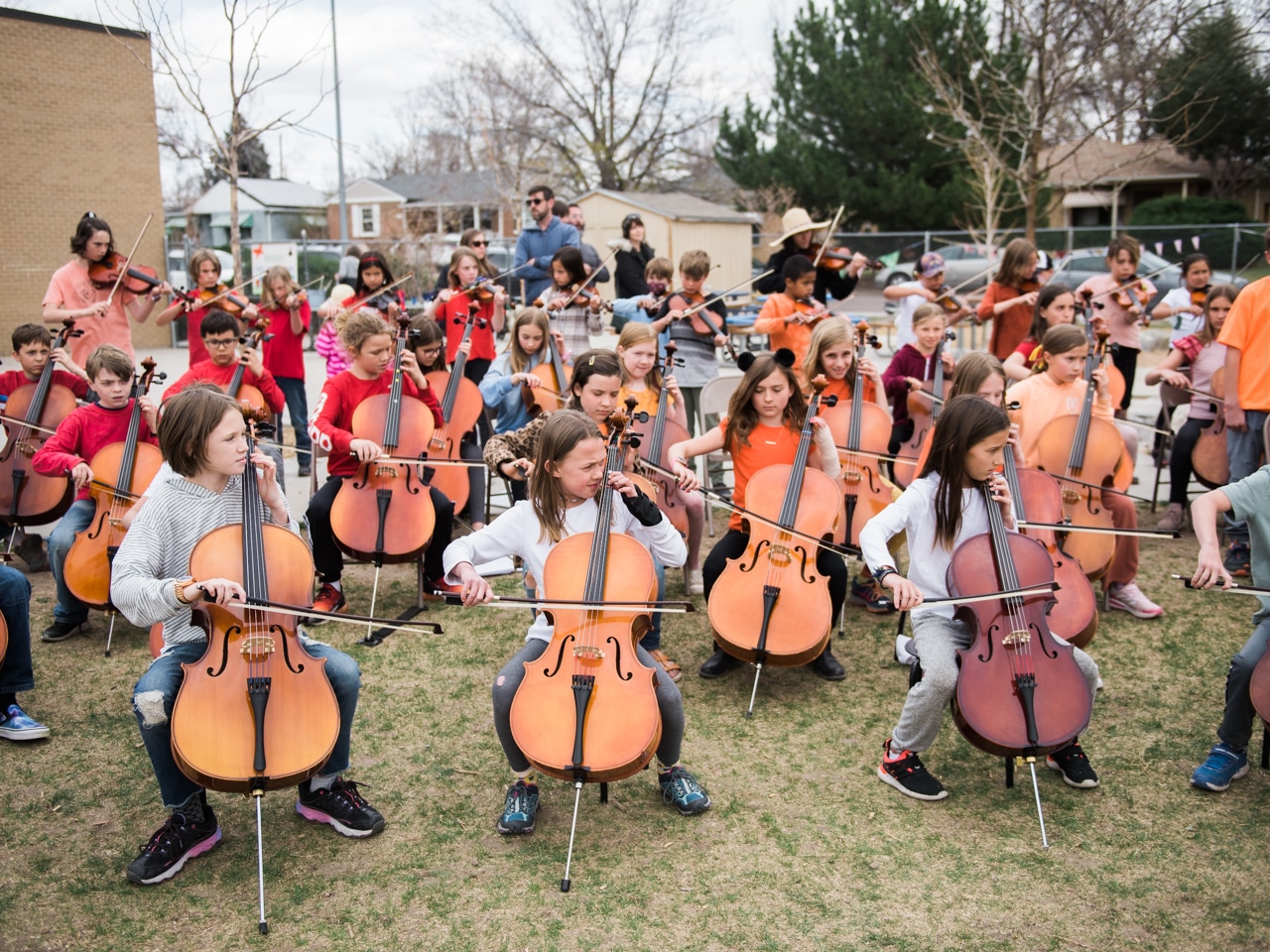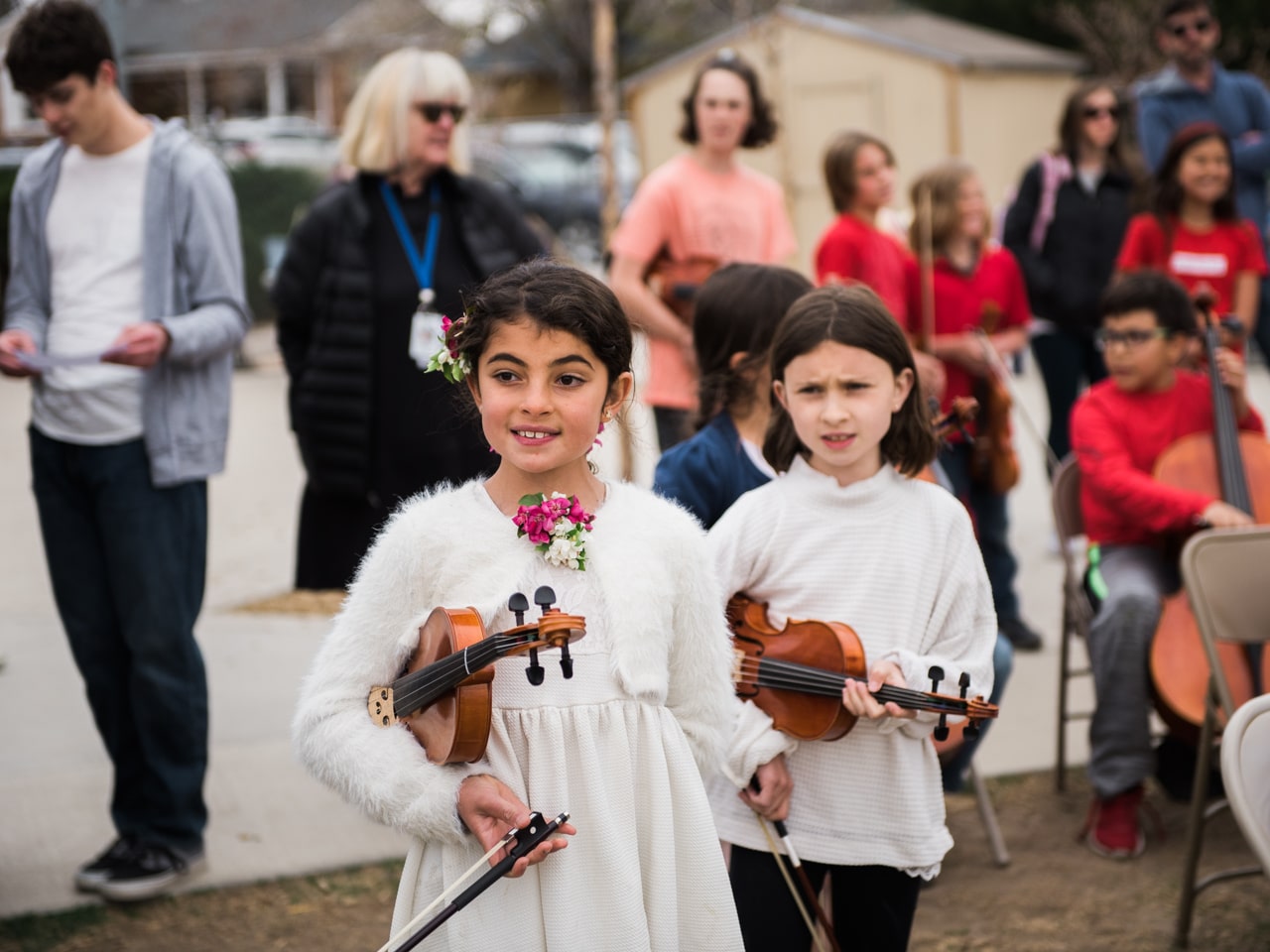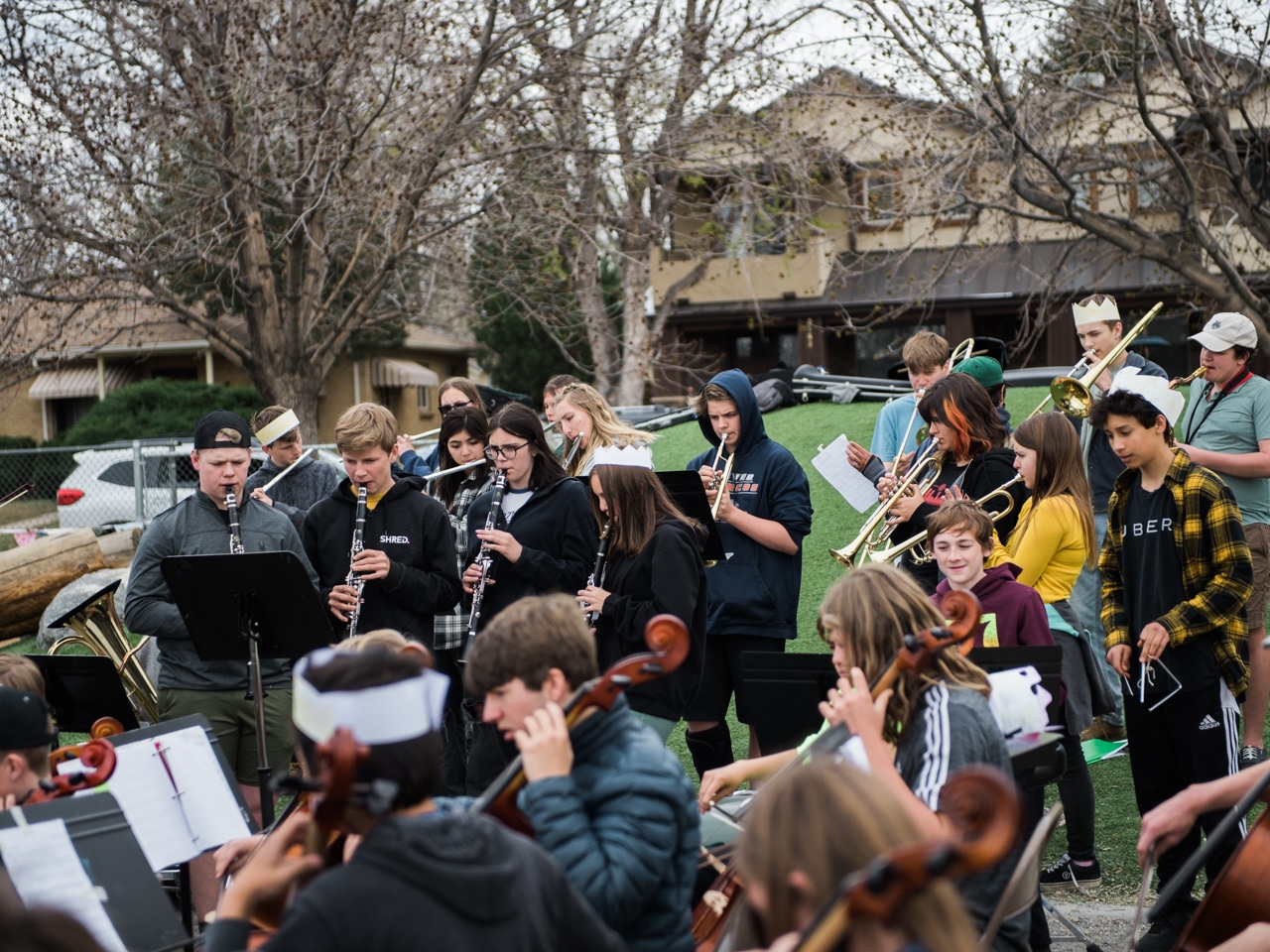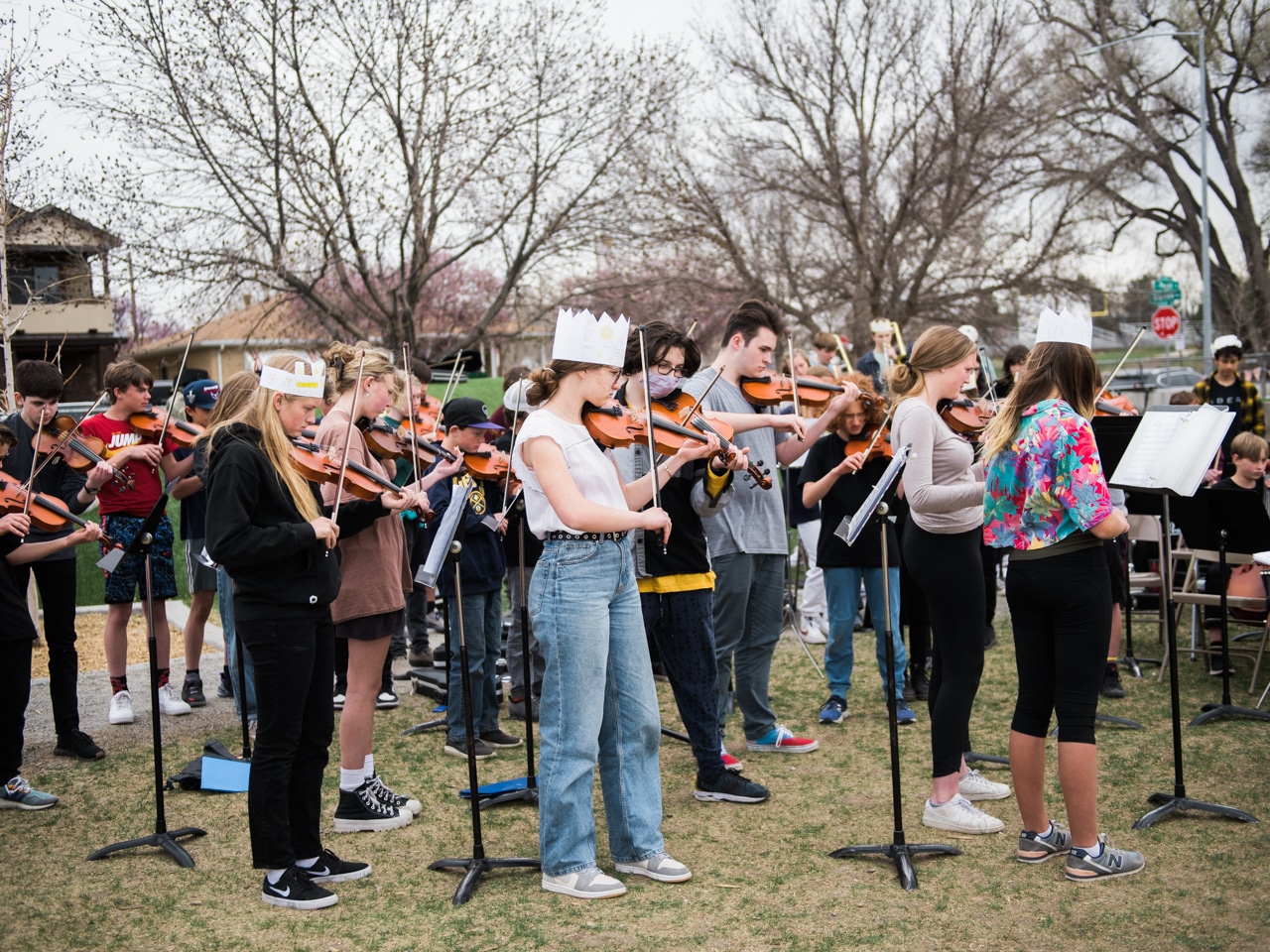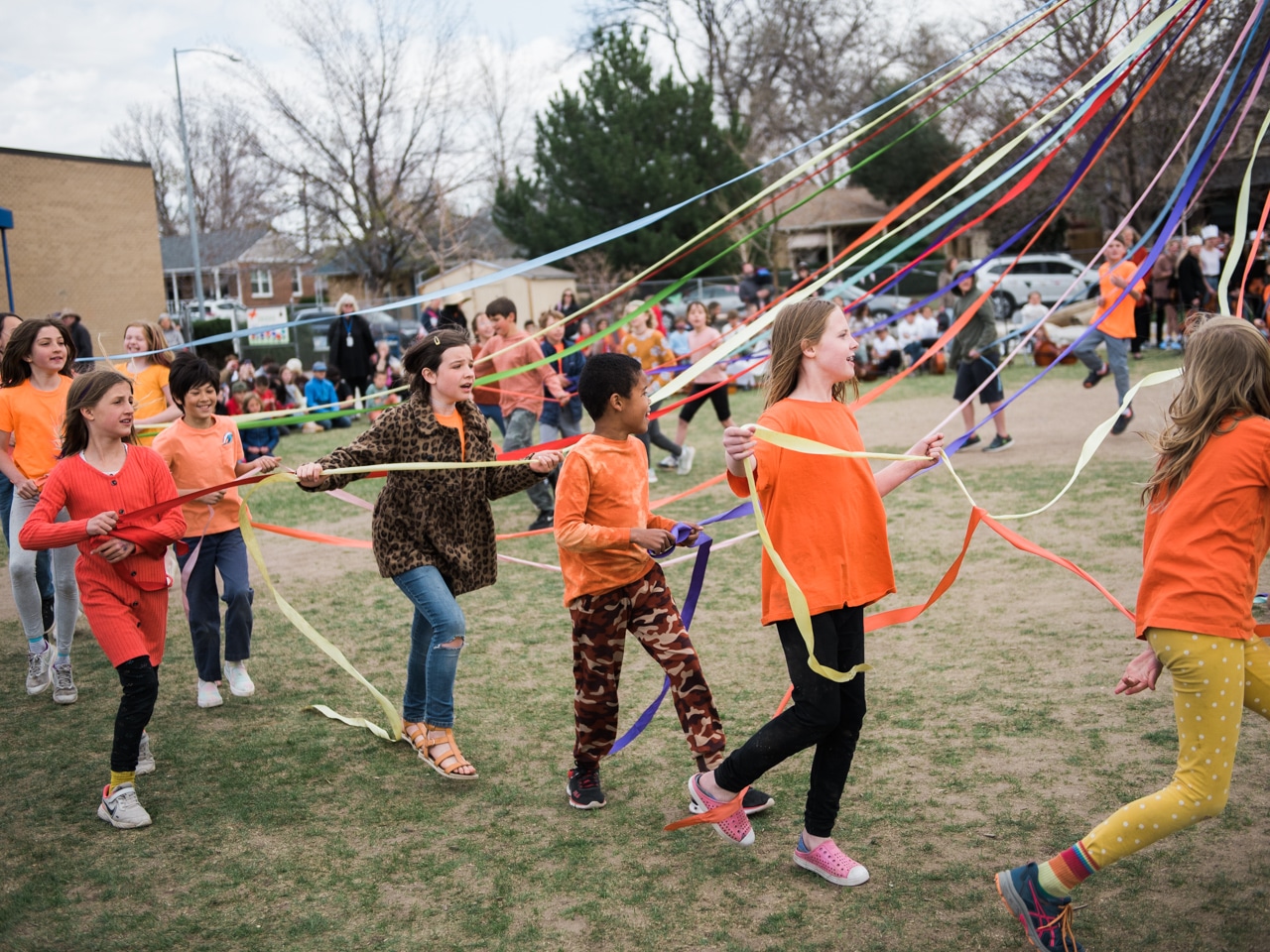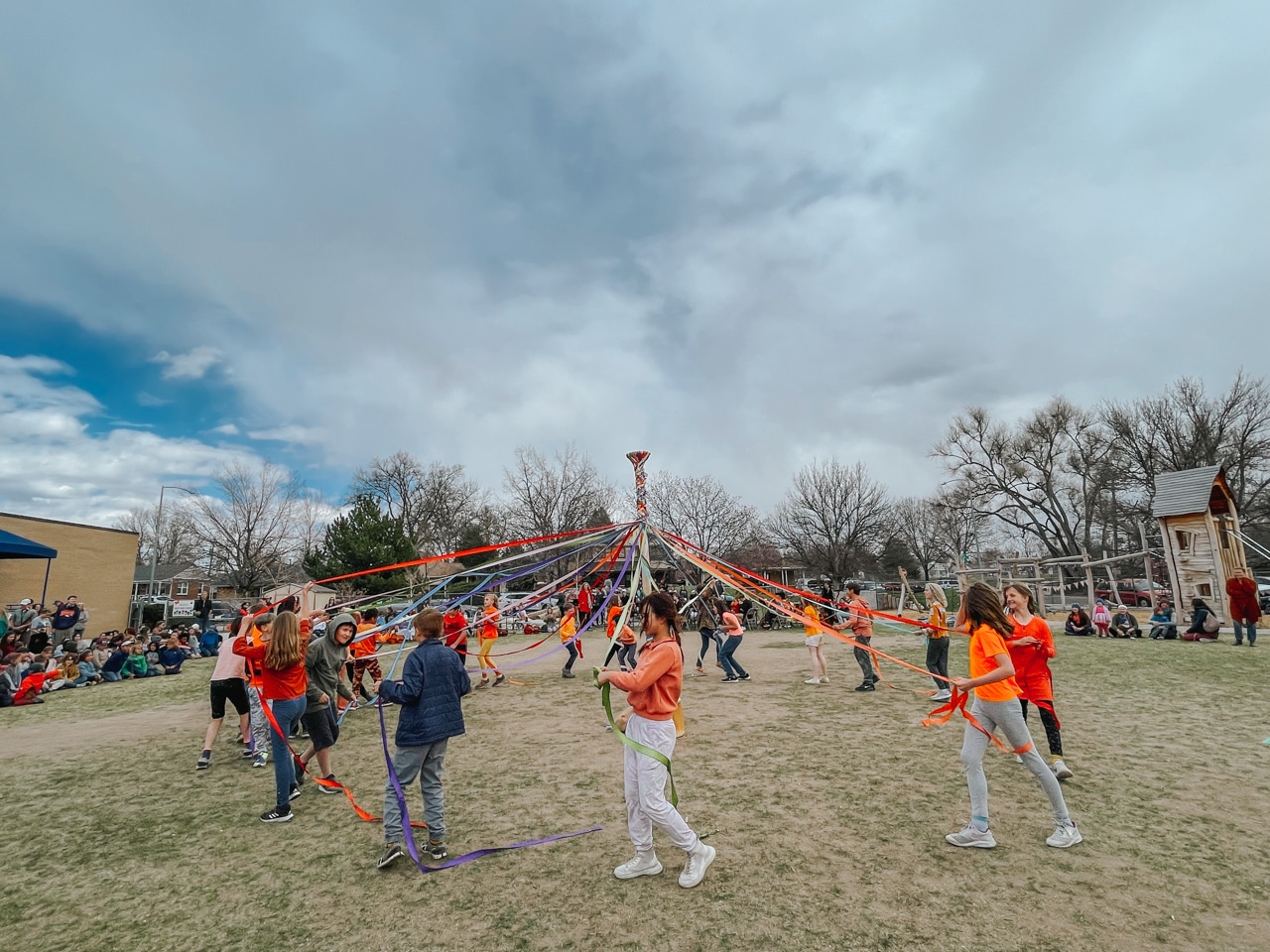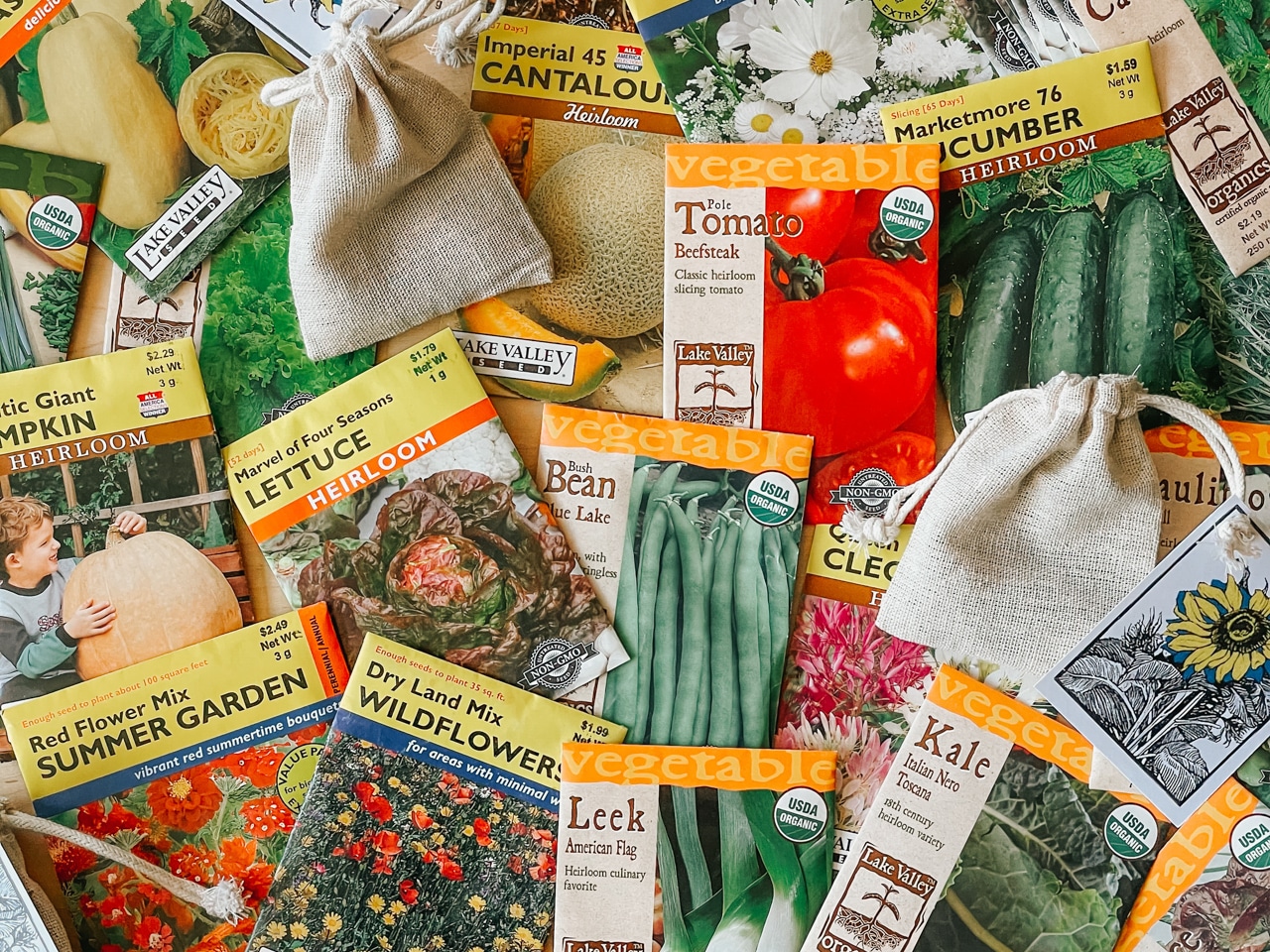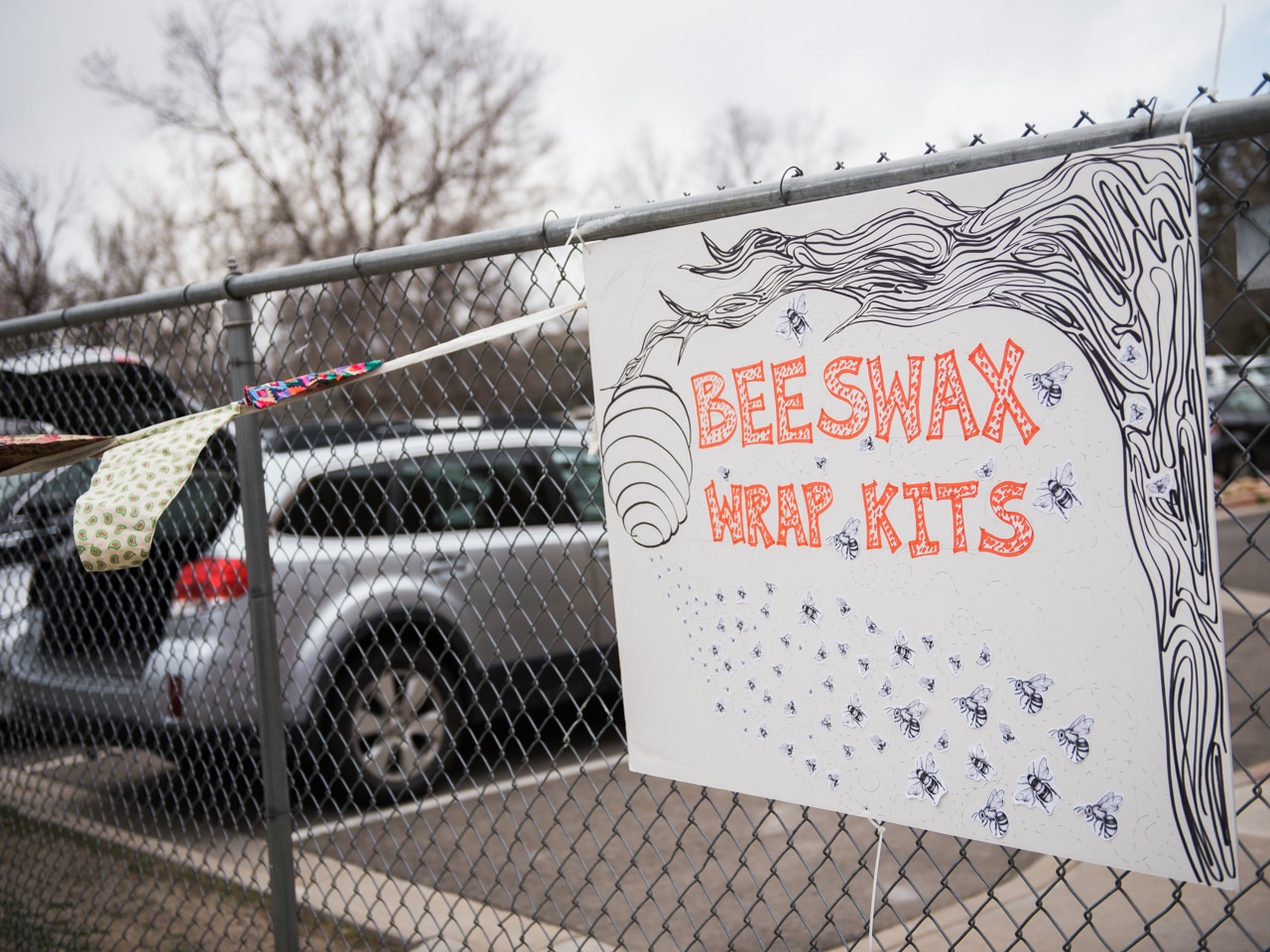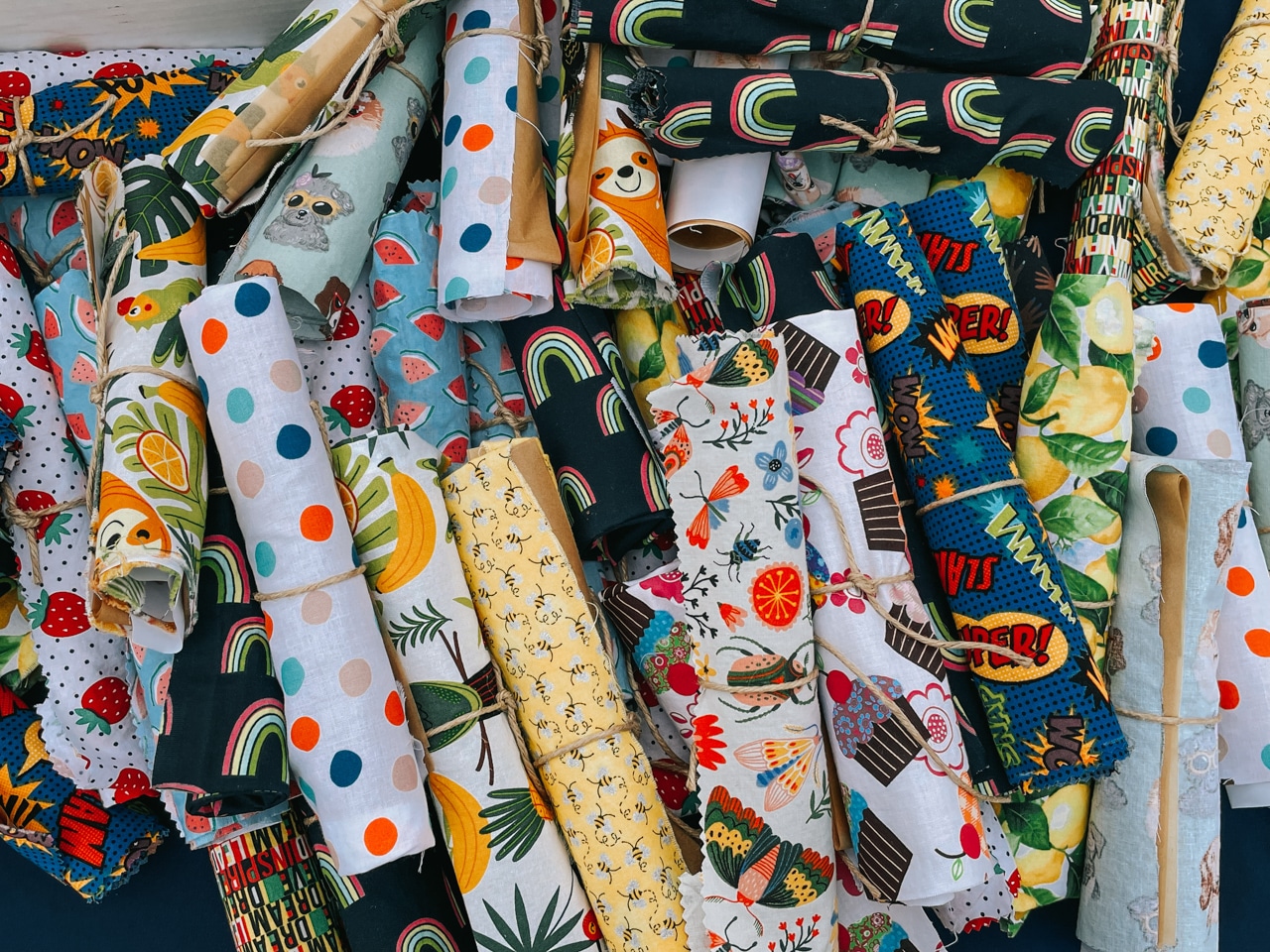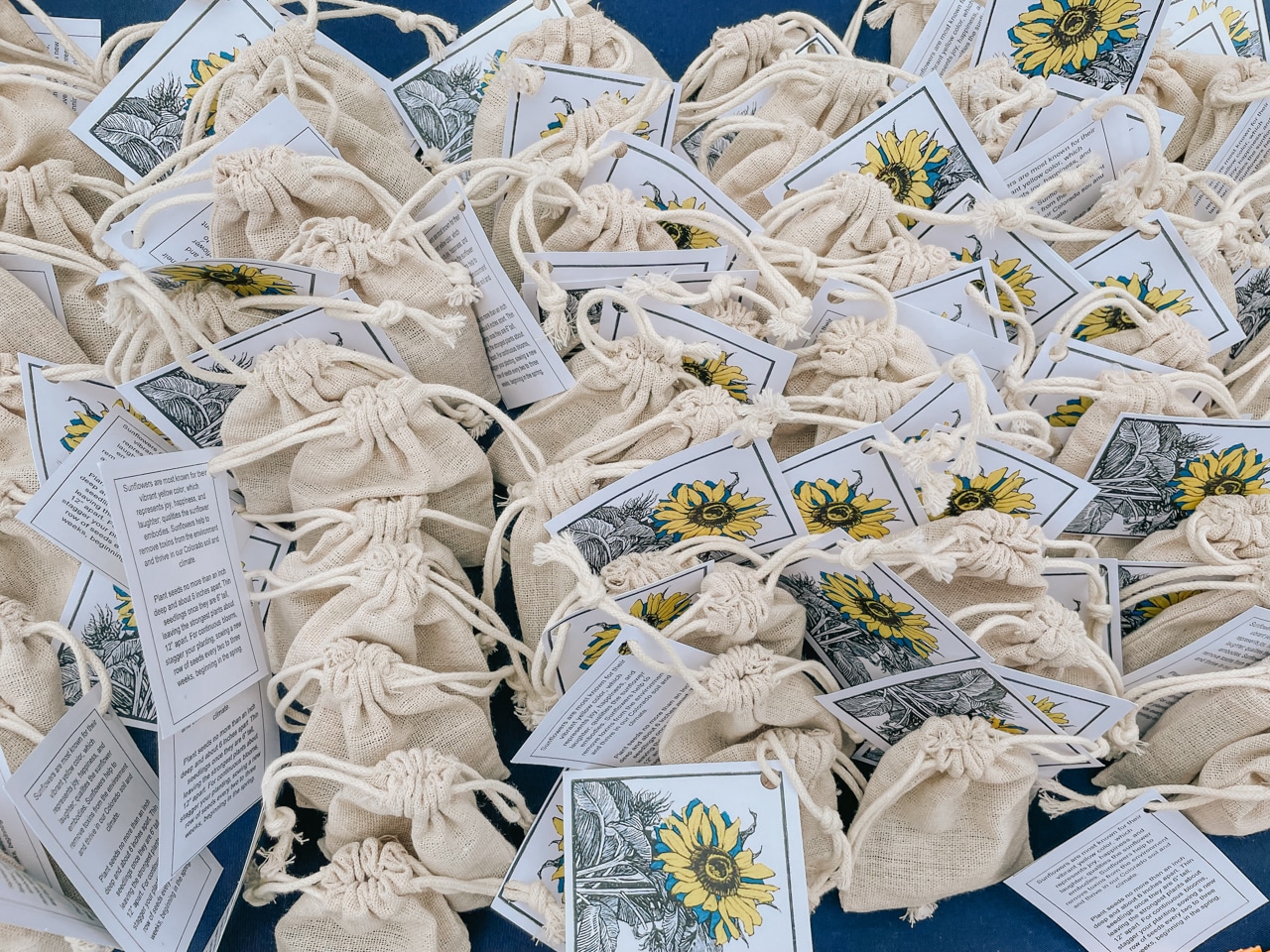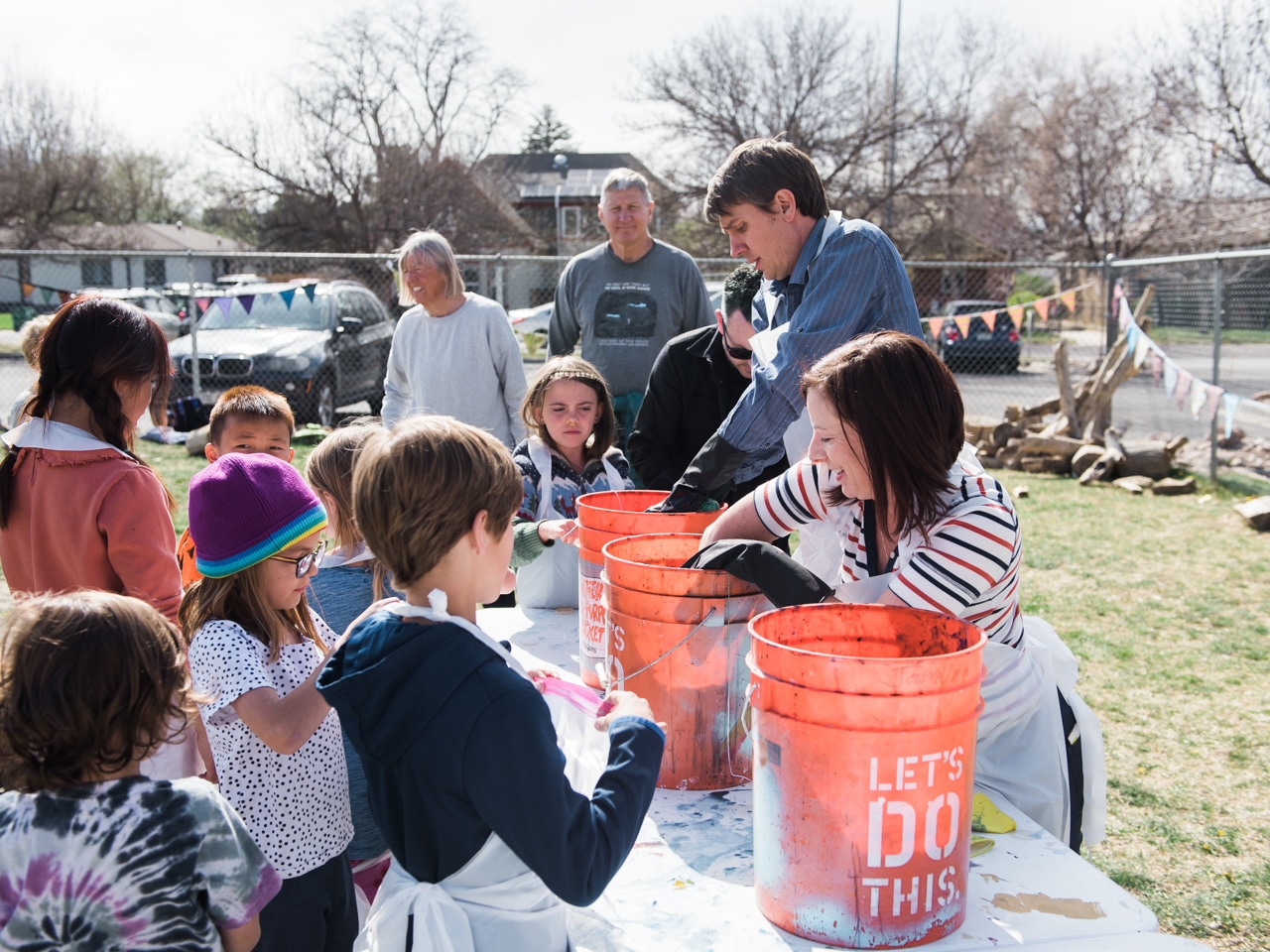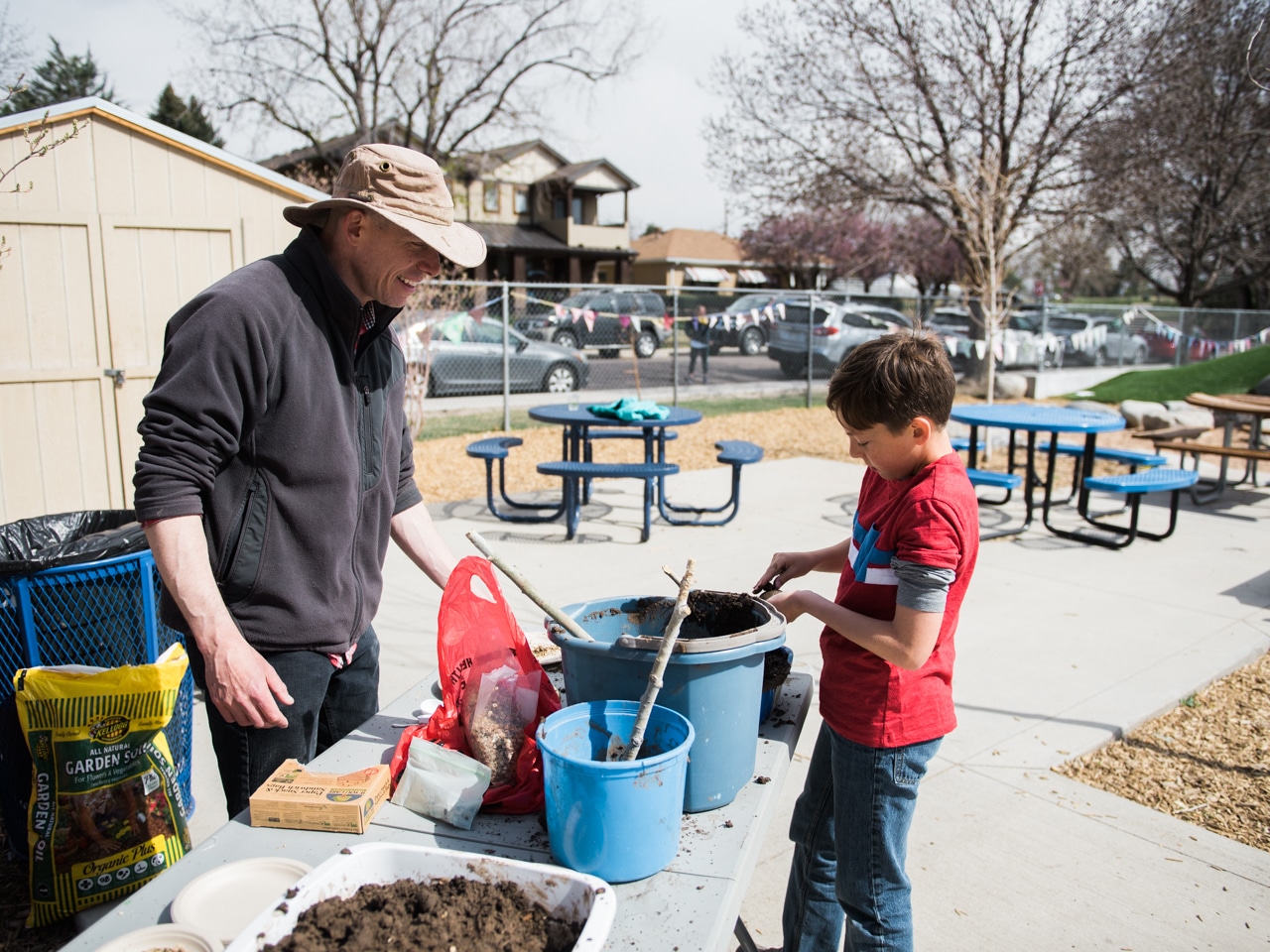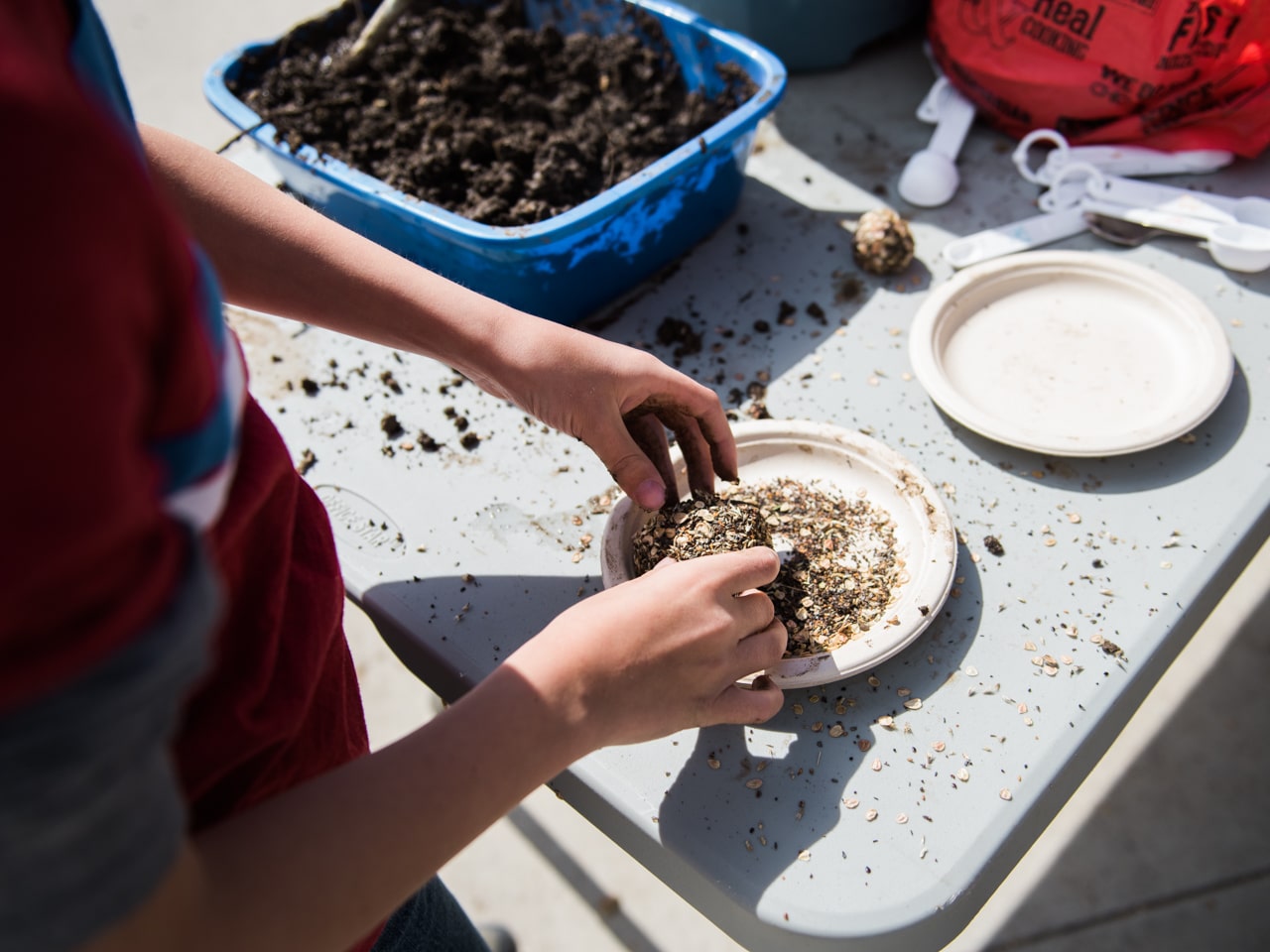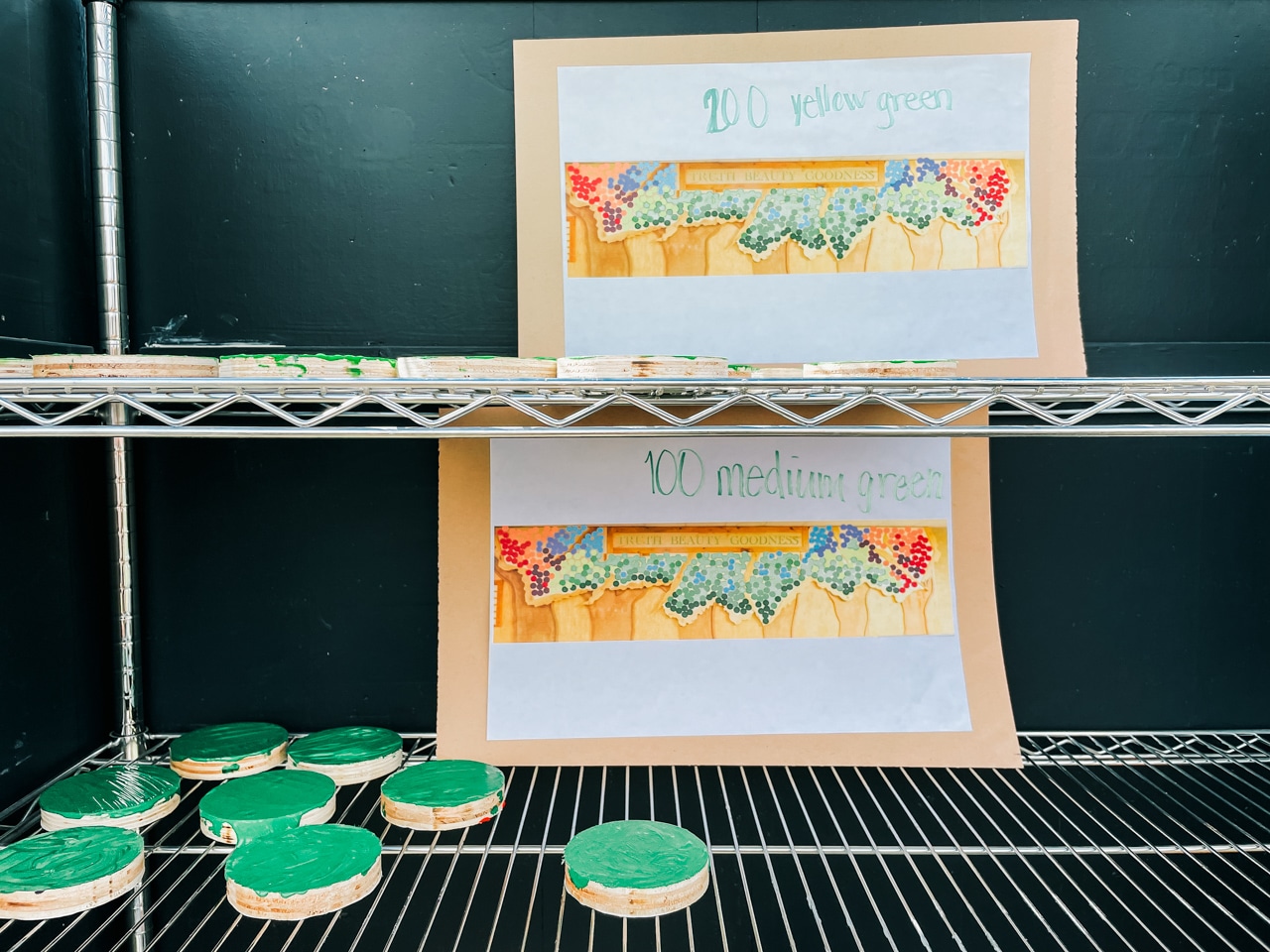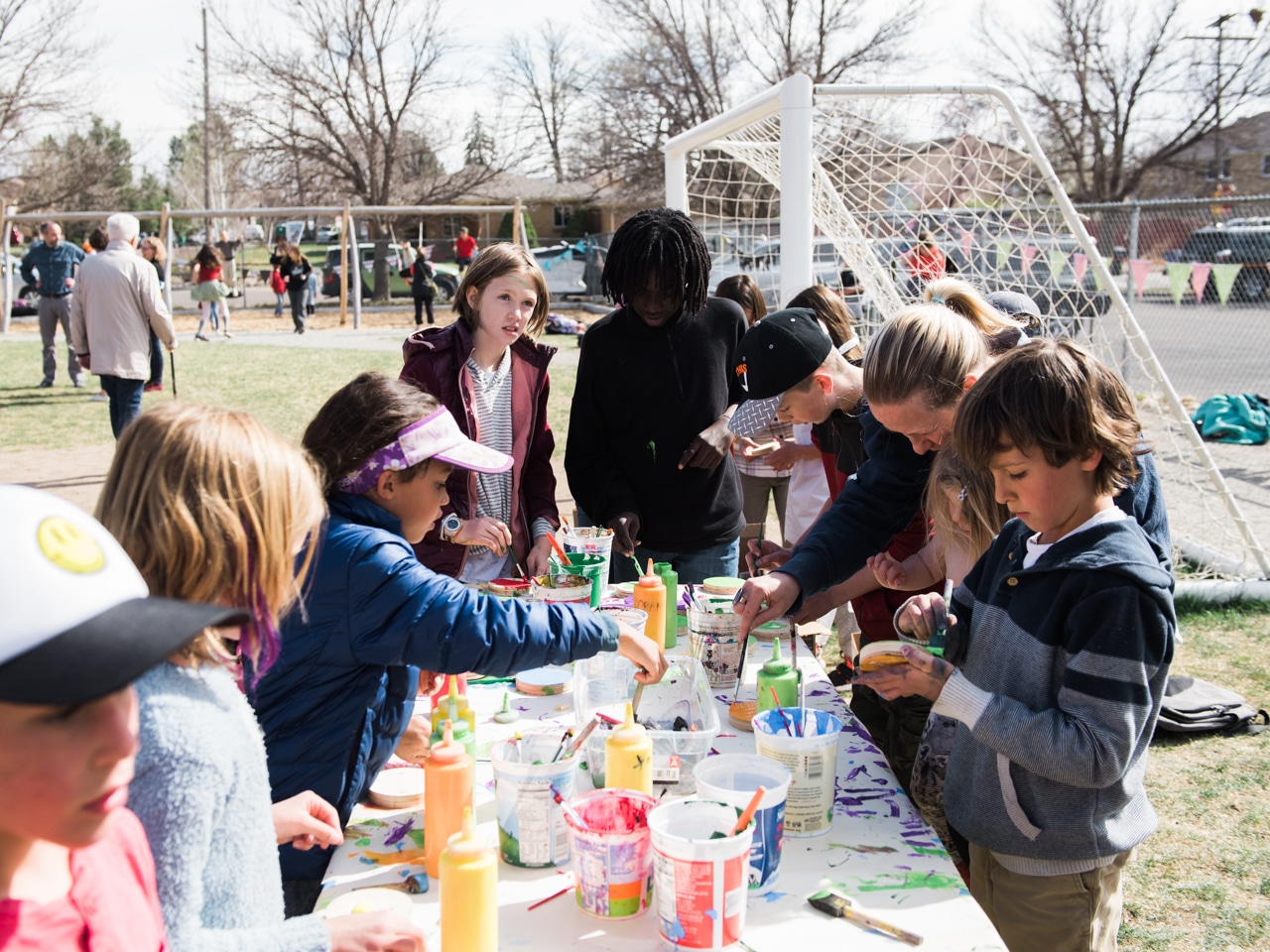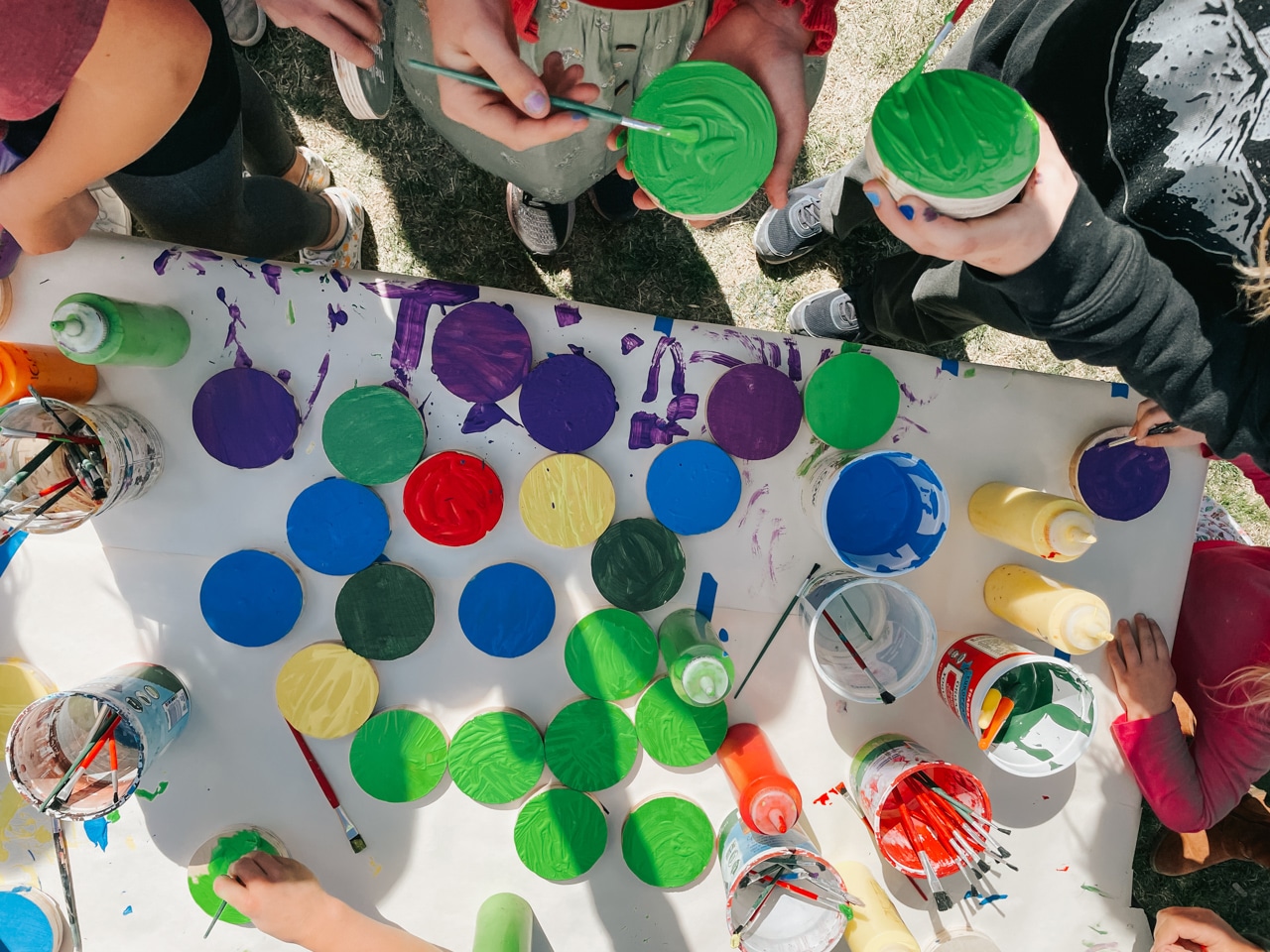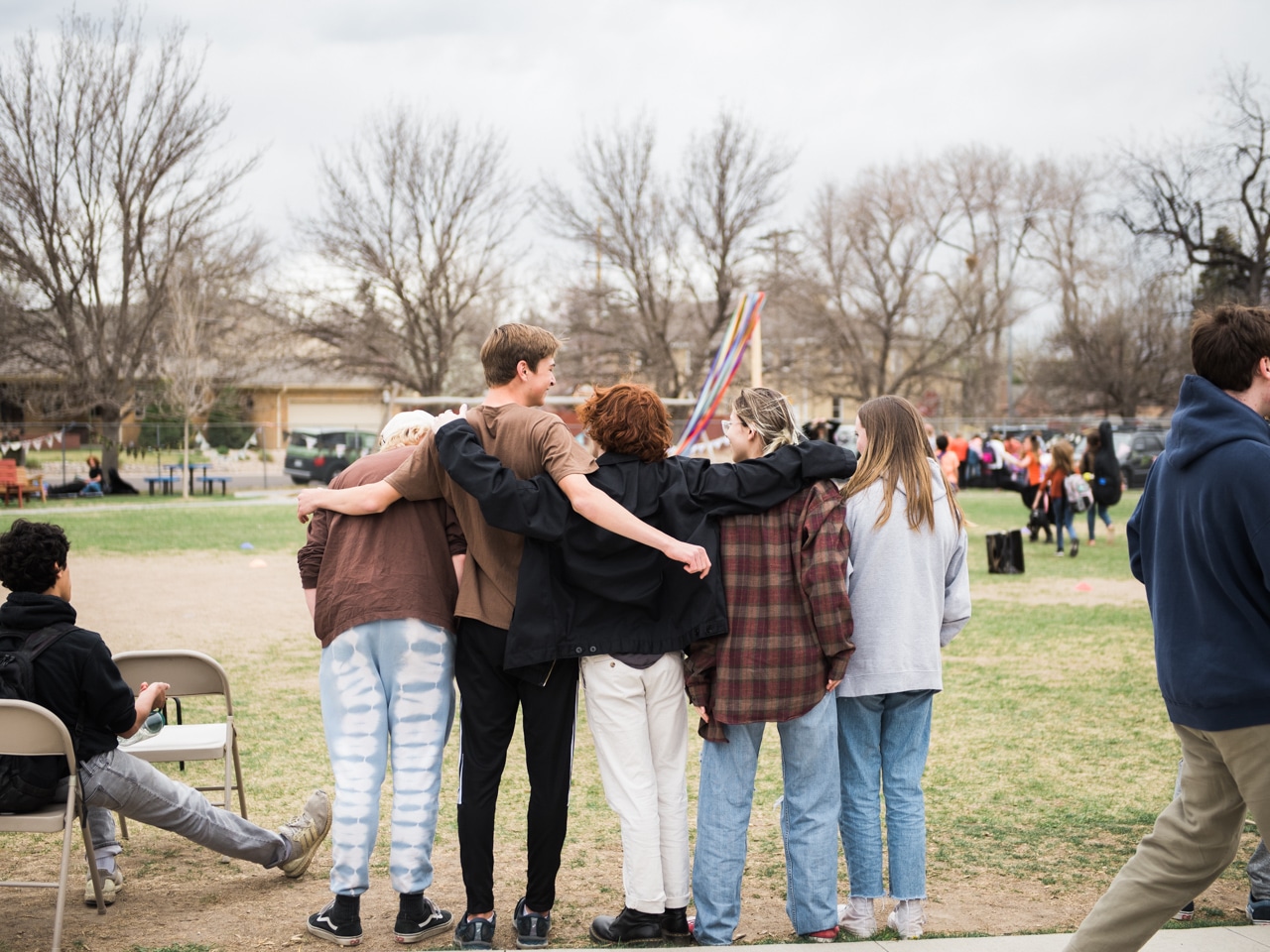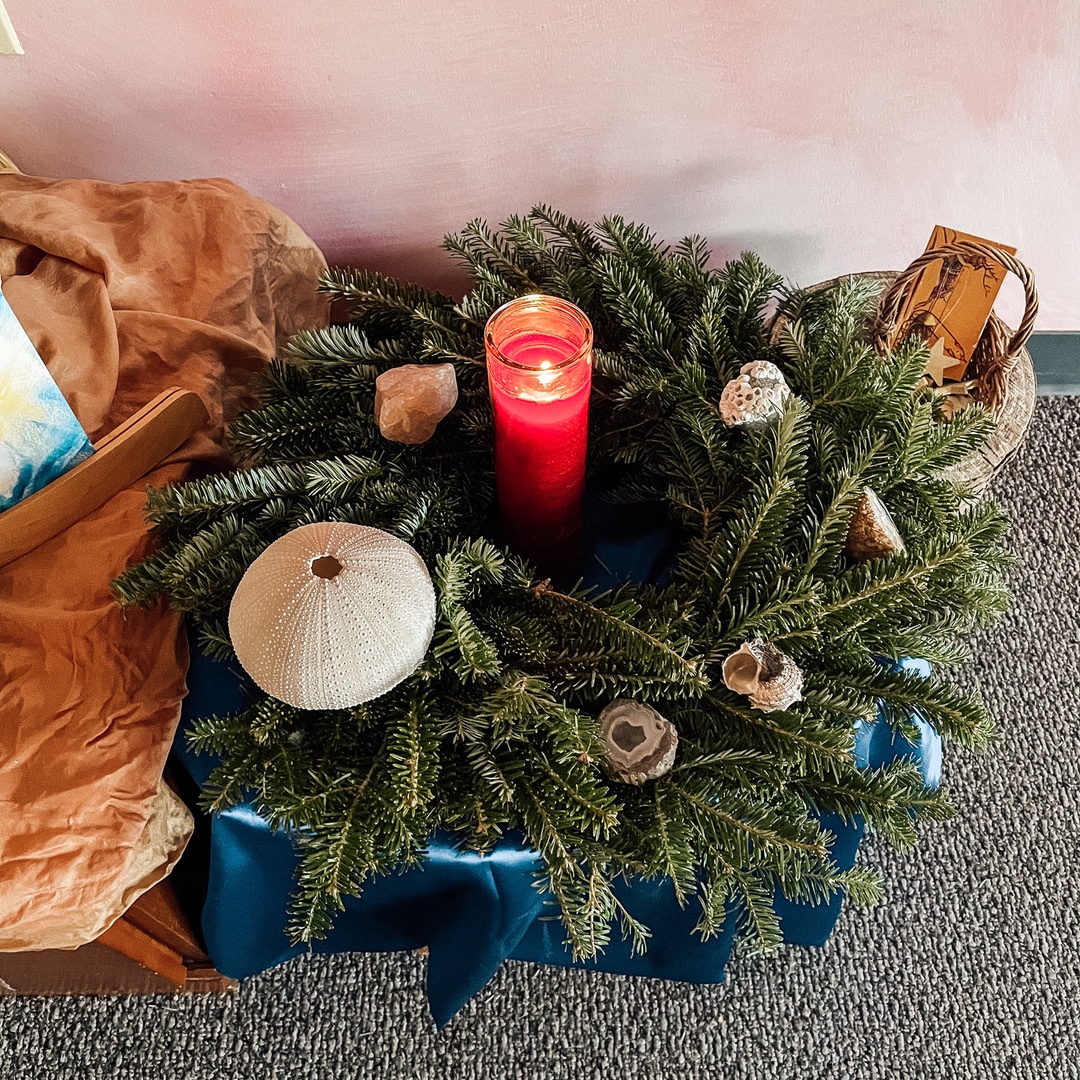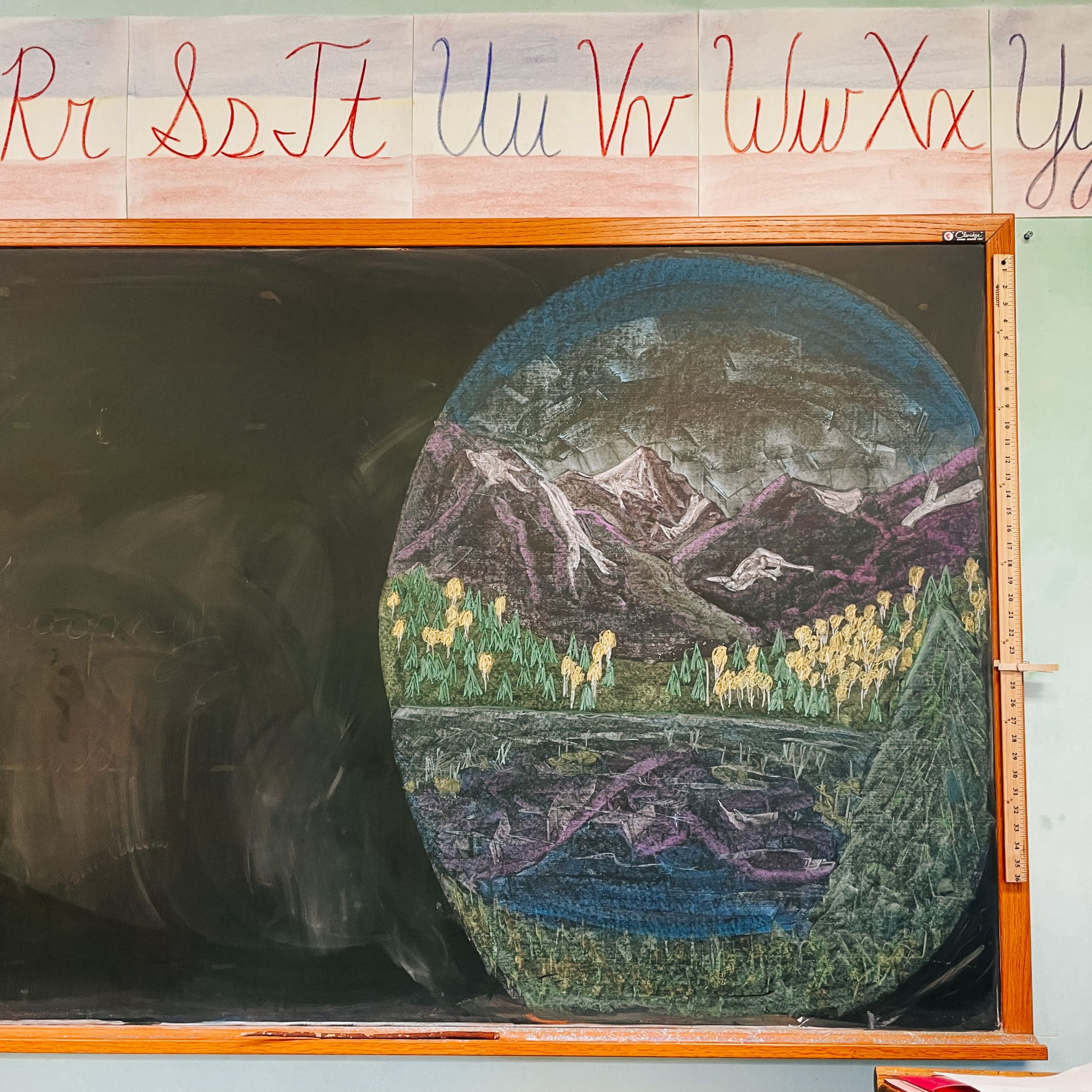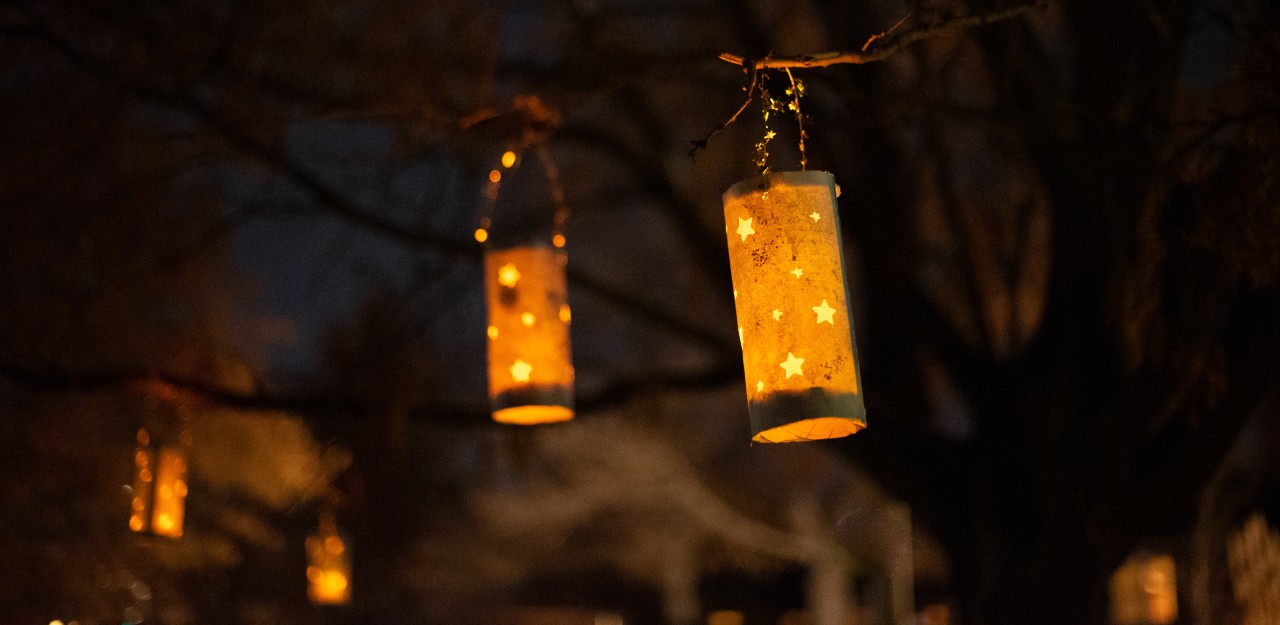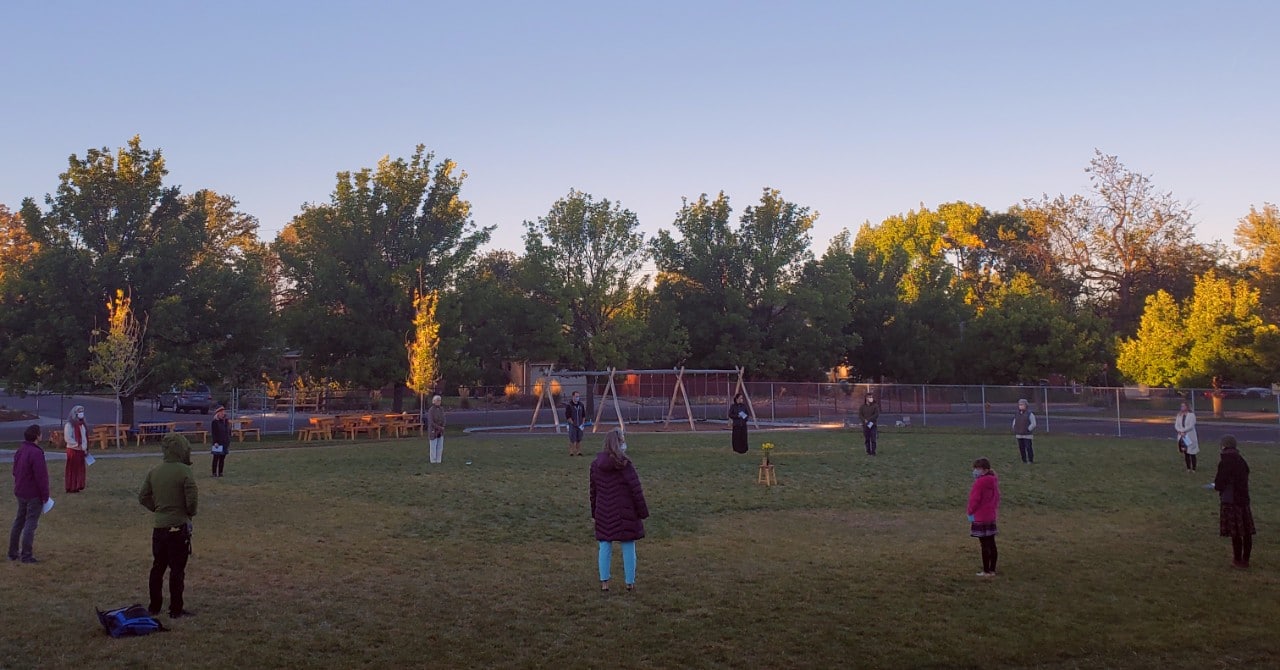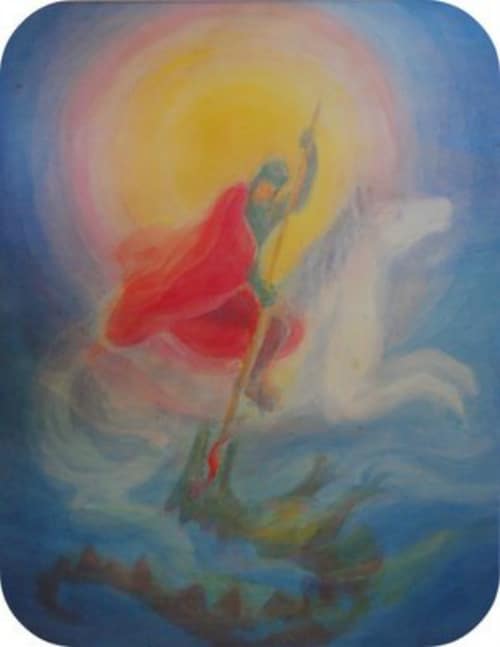A Festival of Strength & Courage - Celebrating Michaelmas
On September 29th of each year, Waldorf schools around the world come together in celebration of the first major festival of the year - Michaelmas. Michaelmas is a traditional Waldorf festival that is celebrated as the summer warmth and light dwindle. As we begin to face the challenges of the darker season ahead, Michaelmas reminds us to find our own strength and courage to overcome fears in our lives. Below, long-time Waldorf educator Nancy Blanning shares her reflections on the meaning of Michaelmas:
We live in a fear-filled world. This has always been true for humanity. Whether it has
been threat from wild beasts, natural disasters, famine and starvation, war, plague and illness,
or material poverty, humanity has always had big worries. In our own time, we experience
strongly that fear and anxiety fill the air we breathe every day as well. Since the pandemic
especially, we do not know from where or when a threat may come. This can fill us with vague,
consistent anxiety. We want to provide our children with the capacities and inner courage to
face whatever unknowns will face them in their futures. How can we do that?
The fall festival of Michaelmas is about confronting fear with courage. Michael fights the
monster. This happens year after year. The beast is never fully quashed. The
Michael/Sophia/gallant souls—the “he,” “she,” or “they”—encounter it again and again, never
backing away or giving up. Nothing in the stories says that they are fearless. They confront fear
by looking it squarely in the face and forging ahead, refusing to become paralyzed by it.
Children are guided not only by what the adults around them say and do, but also by how
they think and feel. If we do not want our children to be narrowed by fear, we must break out
of our own fetters. Michaelmas stories of courage are usually directed to children, yet these
stories speak to adults as well. Where does fear, which will be subtly absorbed by the children,
live in me? This season calls to all of us to acknowledge our anxieties about the future yet walk
forward with our children to affirm the goodness of life through the courage that this festival
celebrates.
Typically, we celebrate Michaelmas with either a field day of games requiring us all to bring our strength and courage, or with a school-wide pageant to embrace the underlying meaning of Michaelmas. 2023 is a pageant year, so our students and staff will come together to act out a story of light overcoming darkness and virtue triumphing over vice. May we all move forward together in this season ahead sharing our light, goodness, and courage!
The Festival of Life Renewed
The Denver Waldorf School is a community that embraces the festival life. We come together to celebrate the turning of the seasons, to find joy and meaning in diverse cultural traditions, and to strengthen our connections to each other and to this world.
This past week, we came together to celebrate The Festival of Life Renewed. Springtime represents the promise of life renewed, as plant and animal life emerges from winter’s chill. Spring’s flowers, like our colorful tulips, open their petals to the sun’s warmth. In a way, our community does the same: opening ourselves to the hope and promise of a new season filled with light. We celebrate both a rebirth of ourselves and of the natural world.
To cultivate our connection to nature around us, we spent the afternoon in service together – whether it was preparing the school gardens, or picking up trash from our surrounding parks, or planting flowers in our pots. Working in community with our hands in the earth, we each had our part in contributing to the beauty around us – with thanks and appreciation for nature’s many gifts.
Our entire student body then treated our community to a performance of Finlandia – coming together in harmony with our voices, string, percussion, wind and brass instruments. As is tradition, our fourth graders then danced around the Maypole – weaving and laughing along every step, all the while showing how our collective contributions can come together!
The celebration continued with earth-focused activities to celebrate spring’s arrival. Thanks to Parent Council and the many helping hands, there were stations for for tie-dyeing t-shirts, painting repurposed pucks that will soon beautify our entryway, making seed bombs, and giveaways for kits to make reusable beeswax wraps as well as seeds to start those gardens.
We are so grateful for our community that cherishes the gifts of the Earth and of one another! May we look forward to all of the growth of the season ahead, together.
Festival of Light Emerging
As the days get progressively darker and colder, we all must strive to cultivate and honor the light and warmth we each carry in our hearts as we wait for the light to begin to re-emerge after mid-winter.
Our school has traditionally gathered together for weekly assemblies in December to hear a story and light candles in the darkness. This year, each class will have its own wreath to light, as we celebrate the Festival of Light Emerging for three weeks on Monday:
- November 30th and December 6th, each with a story shared over the intercom
- December 13th in the Festival Hall
We hope you’ll join us in celebration this season by the sharing of light with one another! Scroll down to download each week’s story to read at home.
The Gift of the Light
The gift of the light we thankfully take
But let it not be alone for our sake.
The more we give light, the one to the other,
It shines and spreads life, a-glowing still further,
Till every spark, by friends set aflame,
Till every heart, the joy shall proclaim,
Not long shall continue the dark of the year.
The Light draws near.
-M. Tittman
Please note: The original verse reads, “The Christ draws near.” We have substituted, “The Light draws near.”
Week One: November 29th through December 4th
Week Two: December 4th through December 11th
Week Three: December 12th through December 18th
The Festival of Courage
On Monday, The Denver Waldorf School will step into a renewed vision of its festival life: The Festival of Courage! After a few years of faculty studies on local geography, culture, and archetypes of seasons and spiritual impulses, we are moving forward in our festival life to reimagine it in a more local context, connecting our students to the geography and community that surround our school. Our first major festival of the year is historically known as Michaelmas, which we also refer to as The Festival of Courage. Michaelmas is a traditional Waldorf festival that is celebrated as the summer warmth and light dwindle, bringing challenges of the darker season ahead. It is about facing these challenges and fears in our lives, and finding our own strength and courage to overcome them. This year, Education Director Vernon Dewey has written a script of a new pageant to celebrate this festival, which embraces the underlying meaning of Michaelmas, but also incorporates new imagery to reflect our local time and place.
The students and staff will act out a story of light overcoming darkness and virtue triumphing over vice. The story is set in a land similar to our own, featuring some local phenomena: a meteor, an elk, a grove of golden aspens. In the story each nation (played by each class 1-12) finds itself put under the spell of a mysterious mist that turns their virtues into vices: initiative becomes cynicism, confidence becomes doubt, courage becomes cowardice, love becomes hate. One young woman, Sophia, is able to rise above it, find inspiration, and help lead the people toward their higher selves through acts of service. Each grade will be assigned a service project to complete in order to resolve the conflict in the story. After our service work is done, we will come back together to share our deeds, whereby light will chase out the mist and light will live on again in our hearts.
You can also listen to our podcast episode to hear more about the impetus behind our reimagined festival life on Spotify here.
Shining Our Light - Martinmas & The Lantern Walk
As the leaves change and fall from the trees and as the chill returns to the air, we become aware of the changing light. The harvest season has come to an end, and we celebrate the opportunity to take the light given to us in the summer months and share it with the outside world. We celebrate Martinmas.
Martinmas occurs each year on November 11th. We celebrate by honoring St. Martin and the gentle warmth and love he brought to the world. Legend tells us that St. Martin was a gentle and unassuming man who upon discovering a poor beggar, took his own coat, tore it in half, and covered the shivering beggar from the cold. Martinmas calls us to shine our inner light to others as the darkness of the season grows stronger.
Celebrating Martinmas at The Denver Waldorf School
The younger grades and the kindergartens (and recently our high school students too!) celebrate this light within us during their class Lantern Walks. Leading up to the Lantern Walk, they each work to create a handmade lantern, which will symbolically protect their light within and fill the dark night with the soft glow of illumination.
The Lantern Walk is a community event during which we are reminded of our shared humanity and our need for each other to keep our light glowing and to count on each other to light our way. It is a reverent time to walk slowly, deliberately, quietly, carefully keeping light and song alive through the dark night for each other. The group of lanterns is beautiful to behold in the dark and we remember that we are not alone. May we move forward in the season ahead, spreading our gifts, our light, our community – and illuminating the beauty of our shared goodness.
Celebrating Martinmas at Home
For those partaking of Martinmas in your own neighborhood, here are some of the traditional Lantern Walk songs, so that you can fill the night with music and light. Shine bright!
I Go Outside With My Lantern
I go outside with my lantern, my lantern goes with me
Above me shine the stars so bright, down here on Earth shine we.
So shine your light in the still dark night, la bimmel, la bammel, la boom, boom boom.
‘Neath heaven’s dome till we go home, la bimmel, la bammel, la boom, boom boom.
My Lantern
So my lantern can really shine bright!
Glimmer Lantern, Glimmer
Glimmer lantern glimmer, little stars a-shimmer.
Over meadow, moor and dale flitter flutter elfin veil.
Pee-wit pee-wit, tick-a-tack-a-tick, coo-coo-roo-coo.
Glimmer lantern glimmer, little stars a-shimmer.
Over rock and stock and stone wander tripping little gnome.
Pee-wit, pee-wit, tick-a-tack-a-tick, coo-coo-roo-coo.
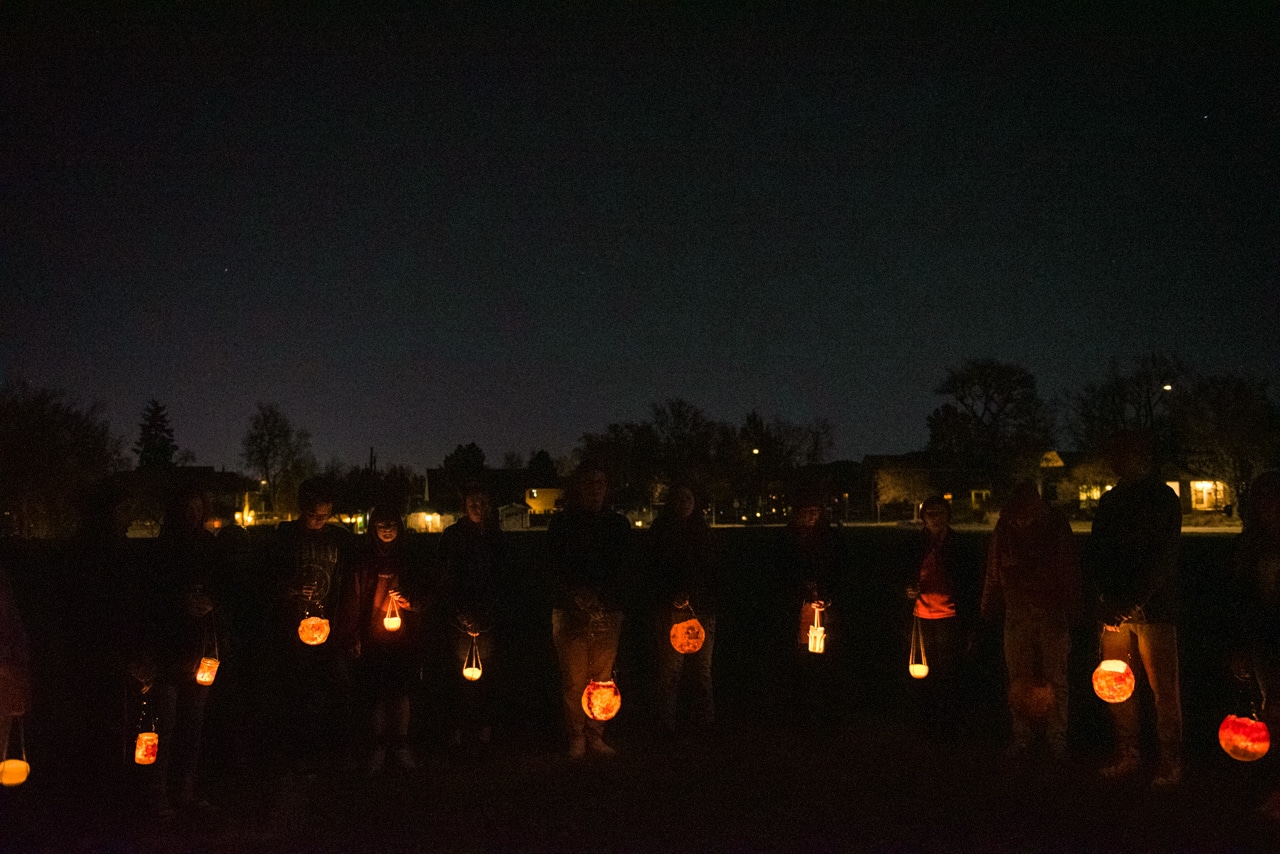
Against Fear: The Michaelmas Call
It is no coincidence that today, September 29th, 2020, The Denver Waldorf community simultaneously celebrates Michaelmas and our school's birthday. With some faculty and staff gathering to commemorate the founding of our school 46 years ago, 6th grade teacher Ben Reynolds described the morning:
With frost covering the playfield and the first rays of Autumnal sunshine struggling through the trees with their remaining withering leaves, we surrounded a humble altar early this morning in order to celebrate our past and renew our commitment to the school and our striving to bring the impulse of Waldorf education to our students and our community.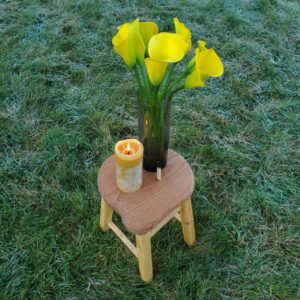
What is Michaelmas?
Our first major festival of the schoolyear, Michaelmas will look and sound differently than any other year. The Festival Hall will sit empty. The children's voices will not ring out together in song of the dragon slayed. But the call to be courageous feels no less powerful.
What is Michaelmas? Why do we celebrate it? The following article Against Fear: The Michaelmas Call is authored by our Educational Support teacher Nancy Blanning and originally published in Lilipoh in 2016. It sheds light on this fall festival, and invites us to stand in the spirit of Michael: against fear.
We live in a fear-filled world. This has always been true for humanity. Whether it has been threat from wild beasts, natural disasters, famine and starvation, war, plague and illness, or material poverty, humanity has always had big worries. In our own time we experience strongly that fear and anxiety fill the air we breathe every day as well. It is a hard fear-state to deal with because we do not know from where or when a threat may come. This fills us with vague, consistent anxiety. And as parents, we feel fear about our children’s safety and the security of their future. We want to protect them and keep them safe. So we should. We want to defend them, reducing the chance that our children will be physically injured, emotionally wounded, or socially challenged. In reasonable proportion, this is all good. We do not want to submit them to experiences that will overwhelm them. What used to be seen as “making children tough” can now be recognized as insensitivity at best or abuse and neglect when extreme. These we know can irreparably damage children. They can become hardened, inclined toward bullying and aggression, or cower in fearful withdrawal.
Yet a stronger temptation of our current times pulls us in an opposite direction. We want to take no chances with our children’s safety or happiness and become so protective that we effectively wrap them up in “cotton wool.” We can become the classic “helicopter parent” who monitors and controls everything we can. This has its equivalent problems. Living in a controlled environment with reduced challenge does not help to develop skills for living into an uncertain future.
If we look deeply into what is influencing our decisions, we find our own fearfulness. Coming from Old English, the word “fear” originally meant “sudden attack, ambush, or snare.” These are timely images that apply to the mood of our lives now. Our own anxieties magnify our fearfulness about what our children may have to confront. So what are we to do?
So much of current education looks to skill development and technological training as “insurance” toward the future. Yet we see that skills become quickly obsolete with the rapid technological advances streaming—maybe even screaming—towards us. So perhaps a more fundamental question is what are the human capacities we can develop to meet the challenges of an uncertain future? The capacity to respond to the unexpected with flexibility and creativity is one. It is healthy to be surprised, even momentarily stunned by a surprise. But we do not become paralyzed in fear. The capacity to take reasonable, healthy risk is another. This means stepping toward a new, unfamiliar experience, even if feeling anxious. We can feel nervous but not paralyzed with fear.
How do we give our children opportunity to develop these capacities? A great insight Rudolf Steiner has shared is that children live into who and what we adults are rather than what we say. They absorb our unspoken attitudes and emotions. If we live in fearfulness, this is what our children will experience. They will absorb our reluctance to enter into life, holding ourselves back in protective gestures. This is prudent and healthy at certain times; but with this as a life gesture, one cannot truly and fully live.
The fall festival of Michaelmas is about fear and courage. Archangel Michael fights the dragon. This happens year after year. The dragon is never fully quashed. Michael confronts it again and again, never backing away or giving up. Nothing in the stories say that he is fearless. He confronts fear by looking it squarely in the face and refusing to become paralyzed by it. In subtle ways, over-protectiveness encourages a kind of paralysis. It allows less and less activity and exploration so the gestures of living become more and more narrow. To be responsive to what lies ahead for us in the future, we need to be nimble and adaptable. Living in a cloud of unnamed fearfulness stills and freezes.
If we do not want our children to be narrowed by fear, we must break out of our own fetters. Michaelmas stories of courage are usually told to children. But the challenge is for us adults is to look into our own lives. Where does my fear live within me? How can I look it in the face and find my own boldness to confront that which intimidates me? How can I protect my child but not smother? How can I find my inner certainty in the goodness of life so my child and I can walk forth in the spirit of Michael?
Living with the Spirit of Michaelmas
The hot summer sun that lingers over the start of the school year is beginning to soften, and there is a chill in our mornings now. Road trips and sunscreen are giving way to school bedtimes and thick socks. In our kindergartens, the children are gathering and preserving the summer fruits for sharing throughout the winter months. The third graders have tucked in their winter wheat—tiny seeds of hope that new life will follow the death of winter. The school hallways are filled with the clear ringing of children’s voices singing Knight Michael songs.
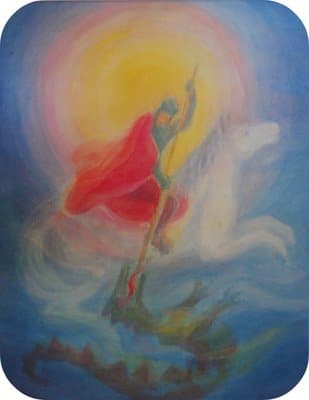
“Brave and true I will be,
Each good deed, sets me free,
Each kind word makes me strong.
I will fight for the right!
I will conquer the wrong!
Sword of Michael brightly gleaming,
Down to earth its light is streaming,
May we see its shining rays
In the Winter’s darkest days.”
A Time for Meaningful Transformation
This is also the time of year the children hear the story of St. George and Dragon, in which the courageous knight must tame the dragon to save the village people. Many of us sense how this story speaks to the necessity of man to tame our personal inner dragons: desire, fear and doubt, indifference and anger, live within us all. They stand between who we are, and what we want to become. We need to consciously meet these parts of our lower selves with satisfaction, courage and trust, interest, forgiveness and love. All around us in the world, we are faced with what happens when human beings cannot make these transformations. Our personal relationships suffer, violence spreads, and we become indifferent to the Earth's environmental crisis.
Many of us strive to make these transformations throughout the entire year. So why is it that we celebrate St George, otherwise known as St. Michael, at this particular time of the year?
Why Michaelmas Matters in Waldorf Education
In the Waldorf school, we are familiar with the image of Michael wielding his mighty sword over the dragon. In medieval art, he was just as often pictured with a set of scales in his hand, and he was known as the “the balancer of souls.” So it is not arbitrary that we celebrate Michaelmas on September 28th, just after the autumnal equinox. In this balance point in the year, we come to the moment in which we must leave Nature's light behind and step into the darkness.
At first, this brings a welcome change. We are ready for the coziness of extra layers, richer foods, inside time with friends and family. But by February, the darkness overcomes many of us. We find ourselves depressed, or have difficulty following through on our intentions. We lack inspiration and there is a drudgery to our days. Close quarters may lead us to become irritable and short tempered with our loved ones. The dullness of Nature begins to take over our inner life. How can we overcome this?
The spirit of Michael becomes our guide at these times. He shows us that through consciousness, we can seek out things that inspire us, bringing color and joy back into our days. We can find small ways to develop our discipline and our ability to follow through. We can strive for compassion and understanding for the people around us. By connecting to our highest selves, we can balance what surrounds us in the inner world. With strength and courage, we become a little bit closer to taming the dragons within. If we are to be successful in this, we must come to know the spirit of Michael now, in his season, as he shepherds us into Nature's darkness.

